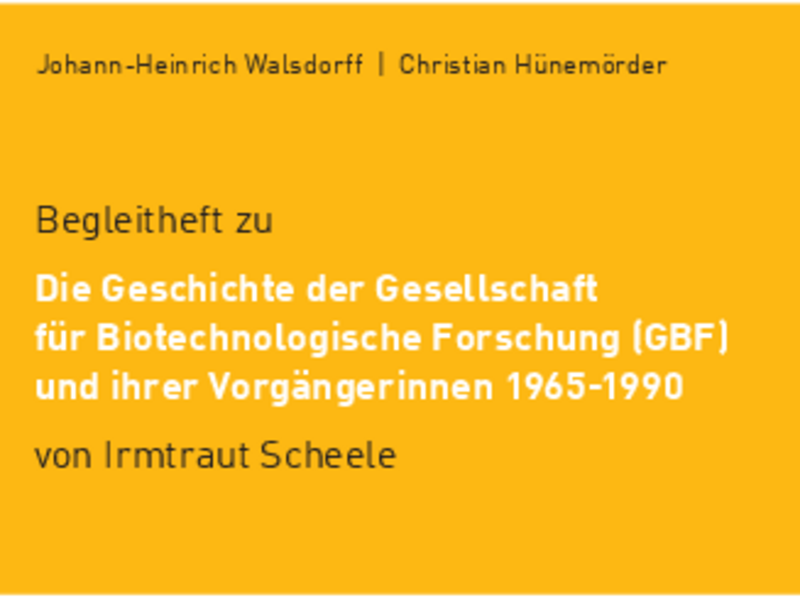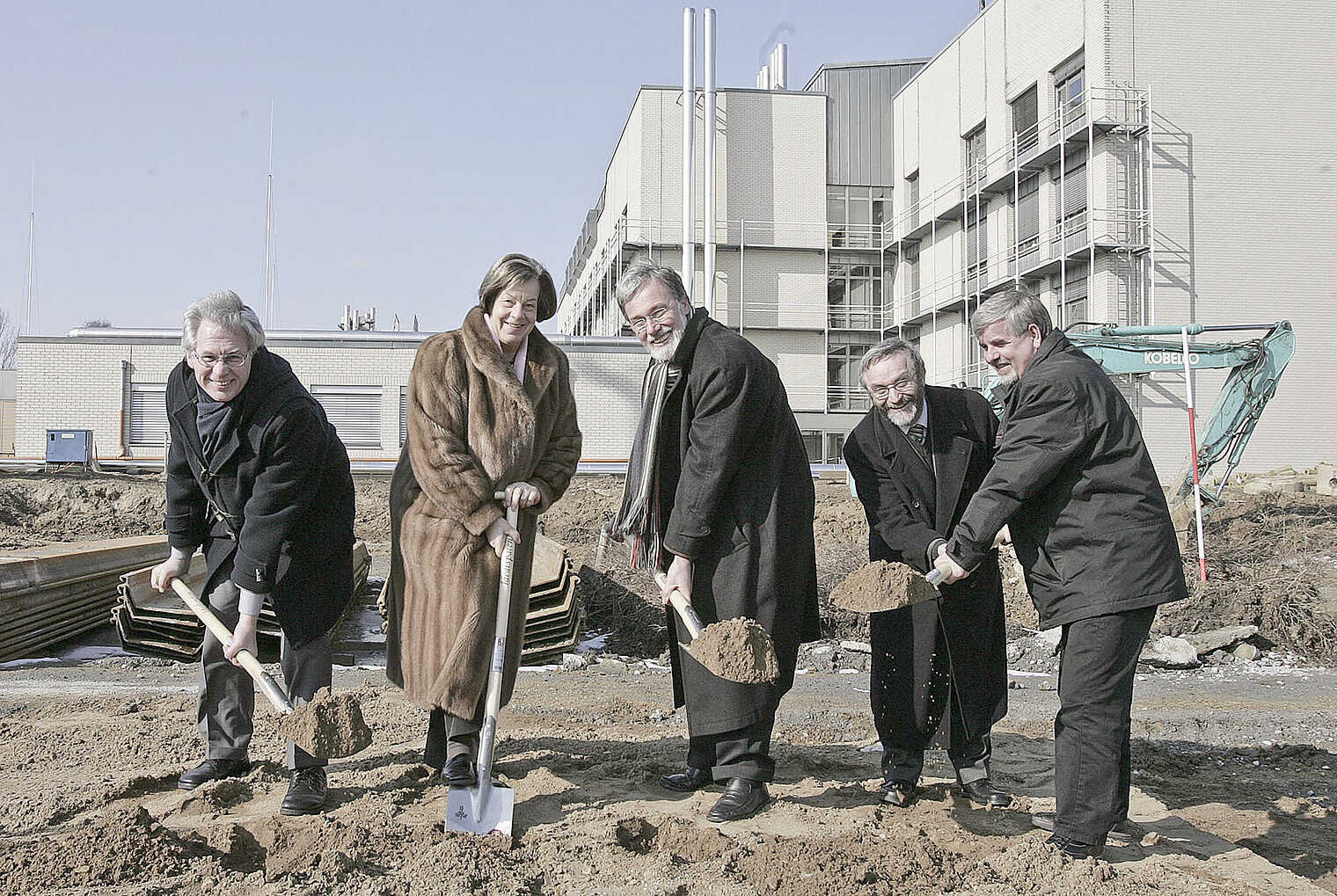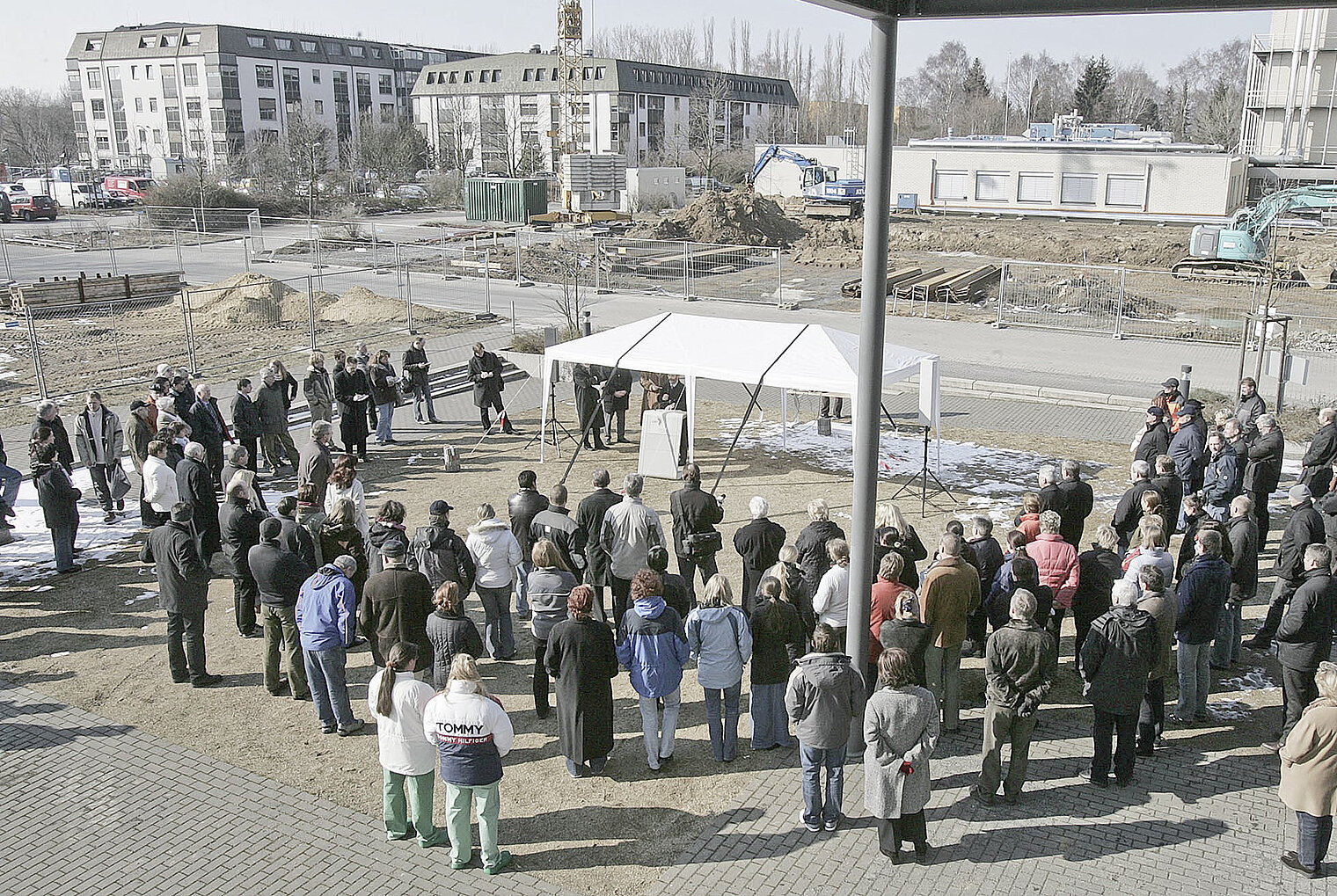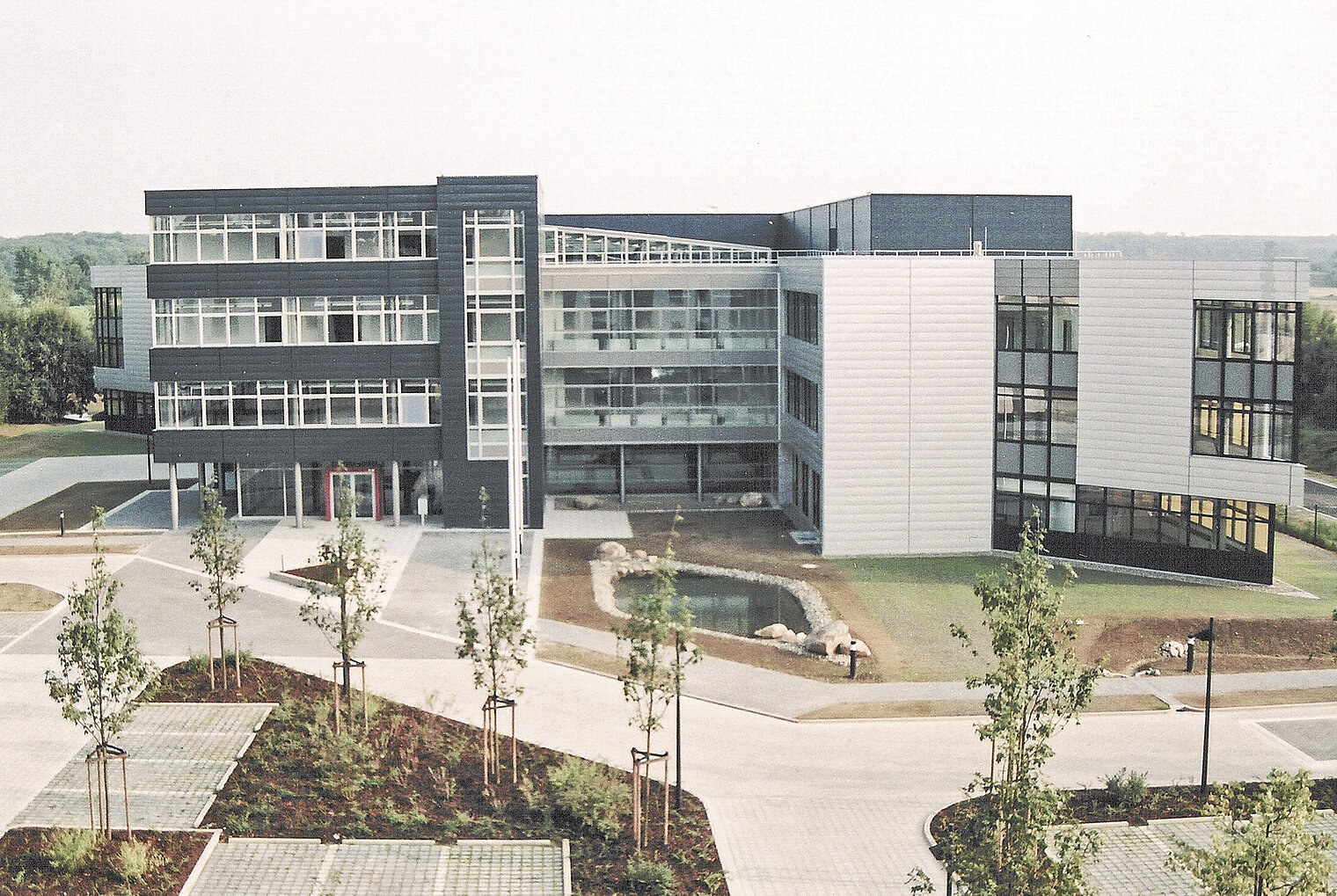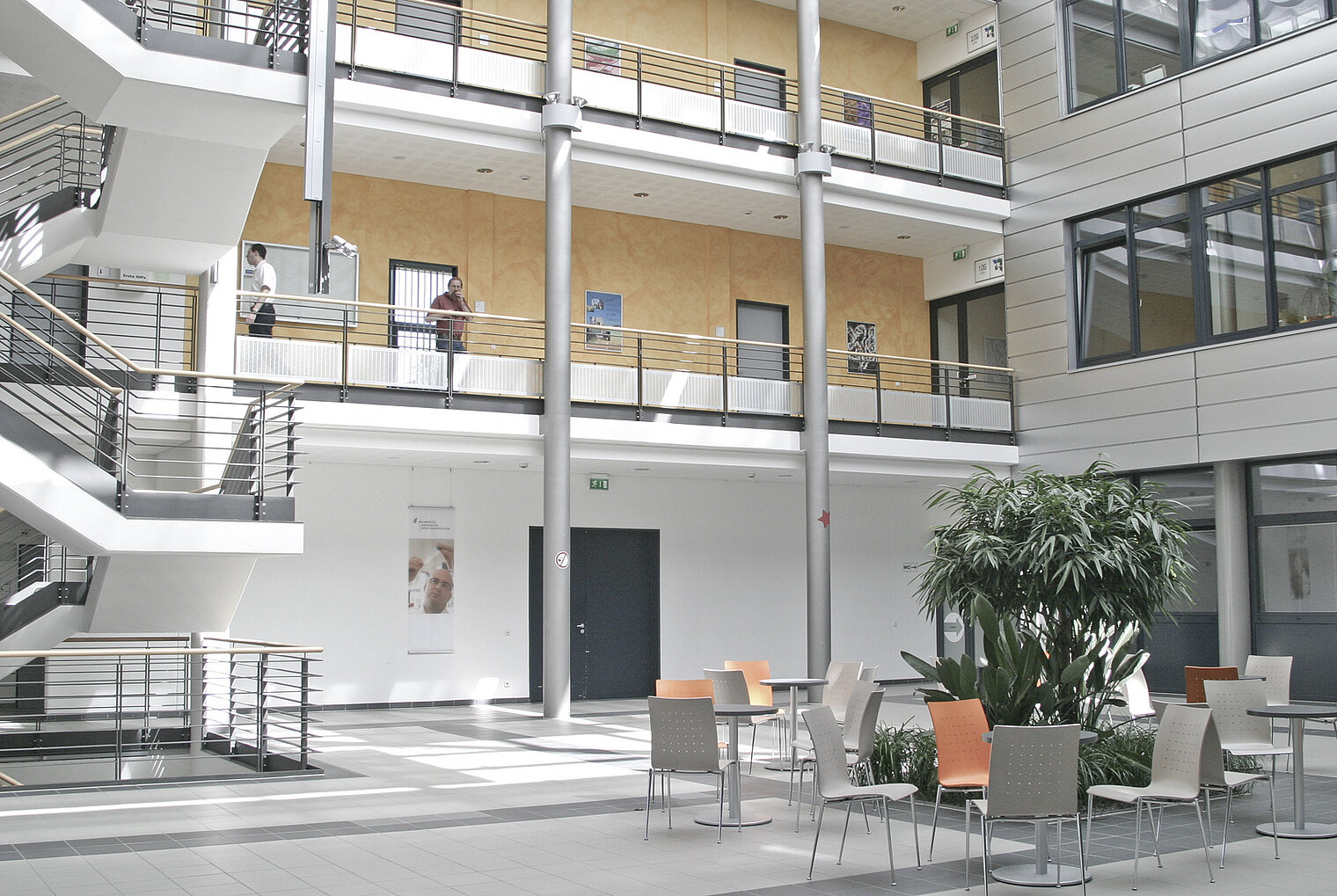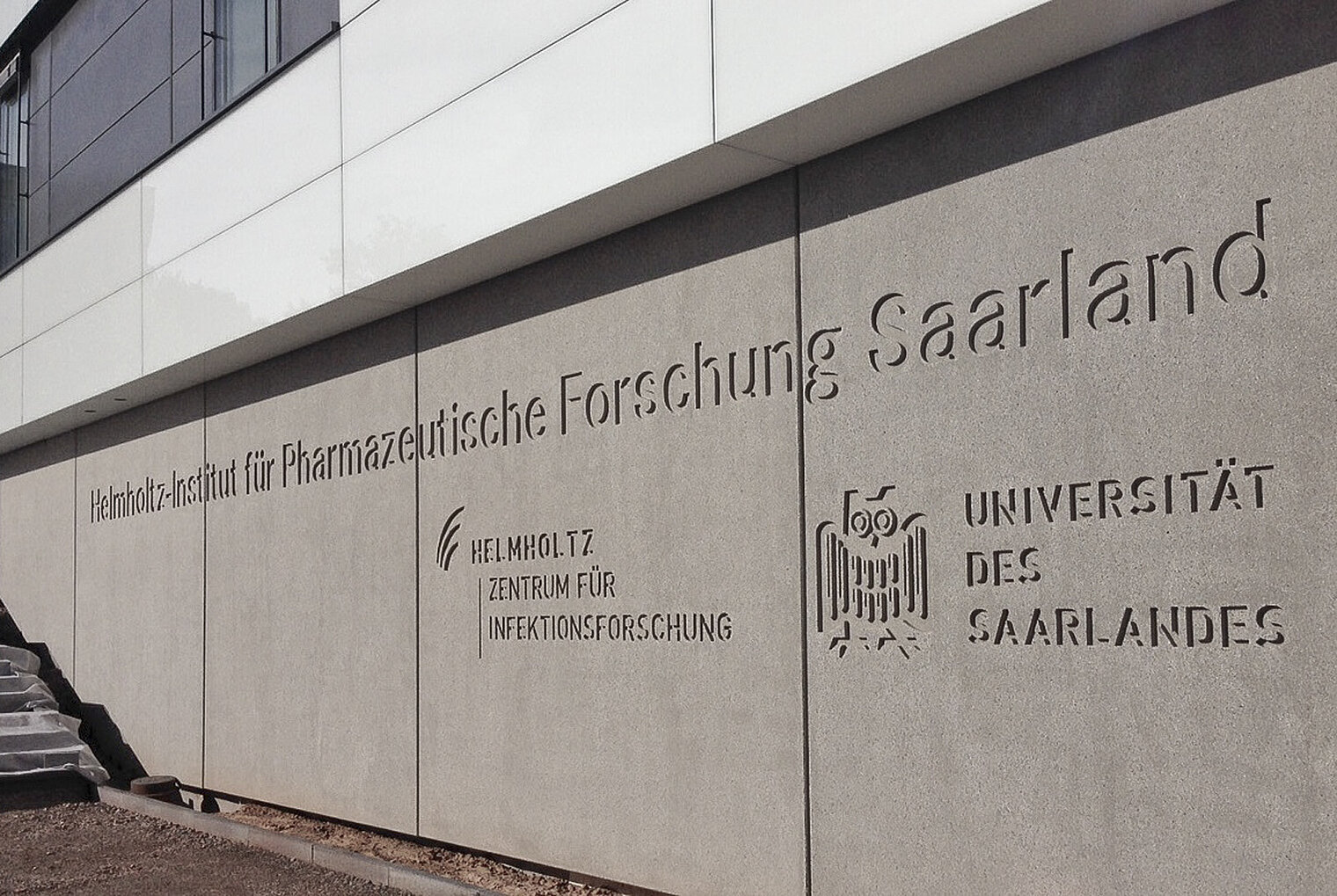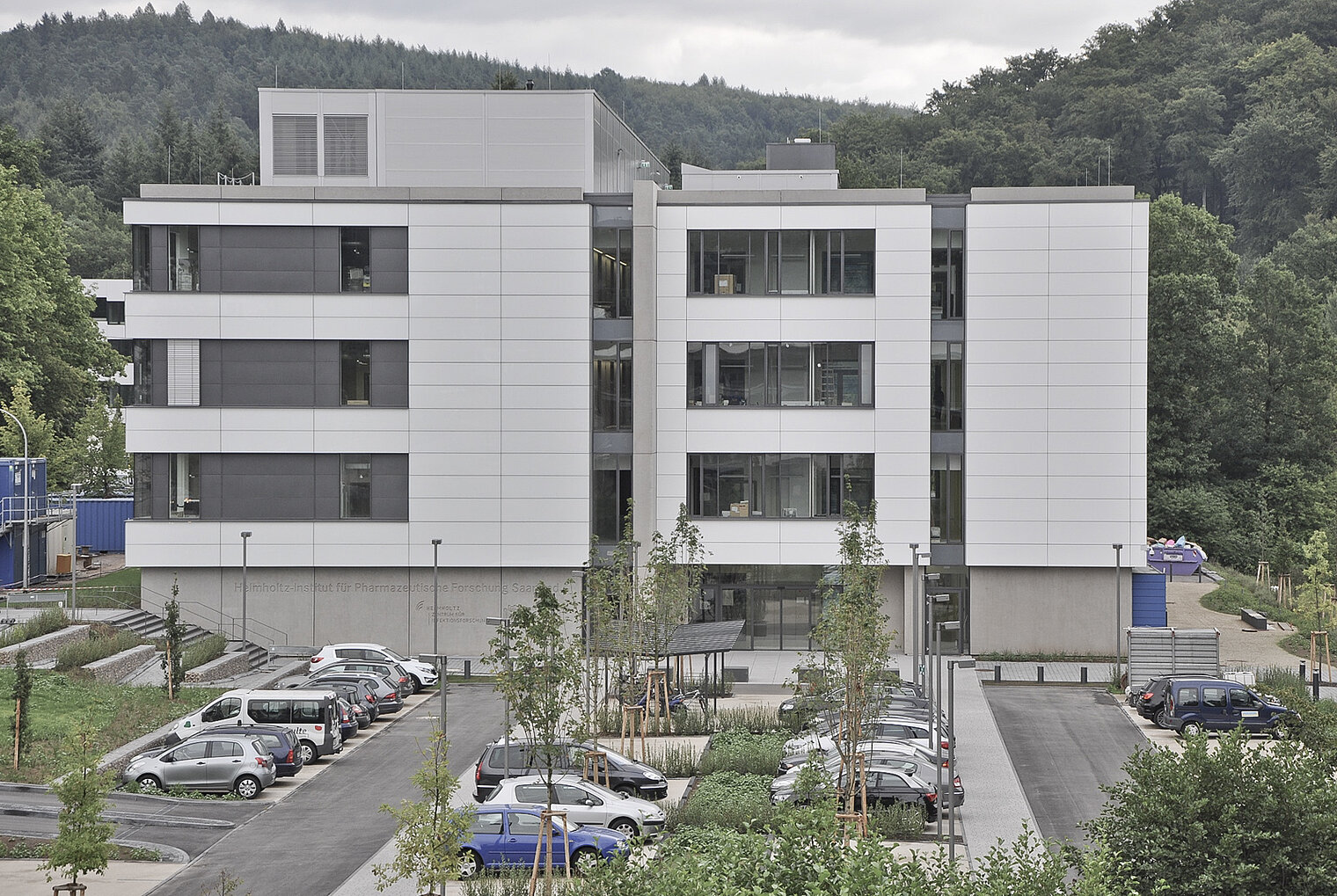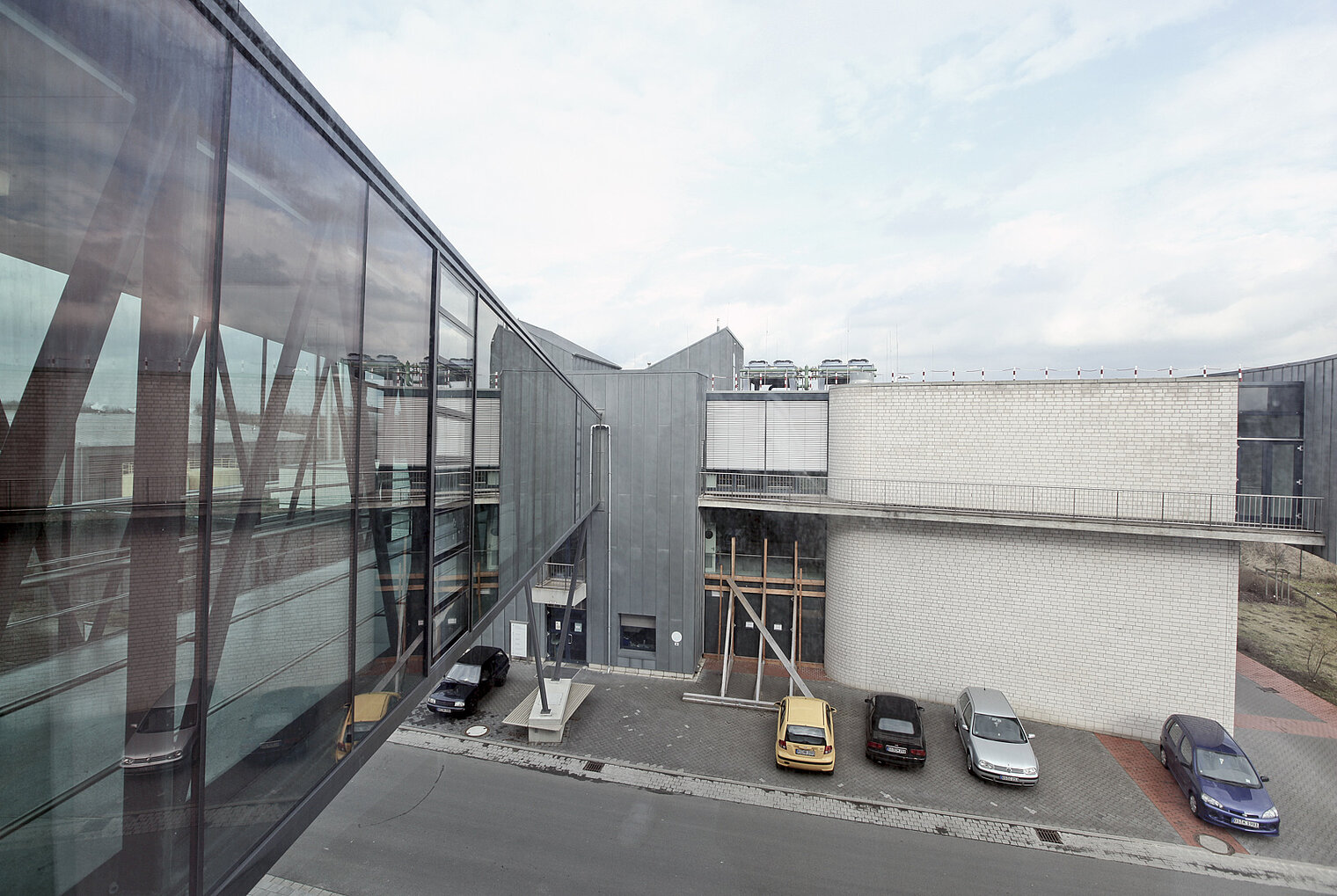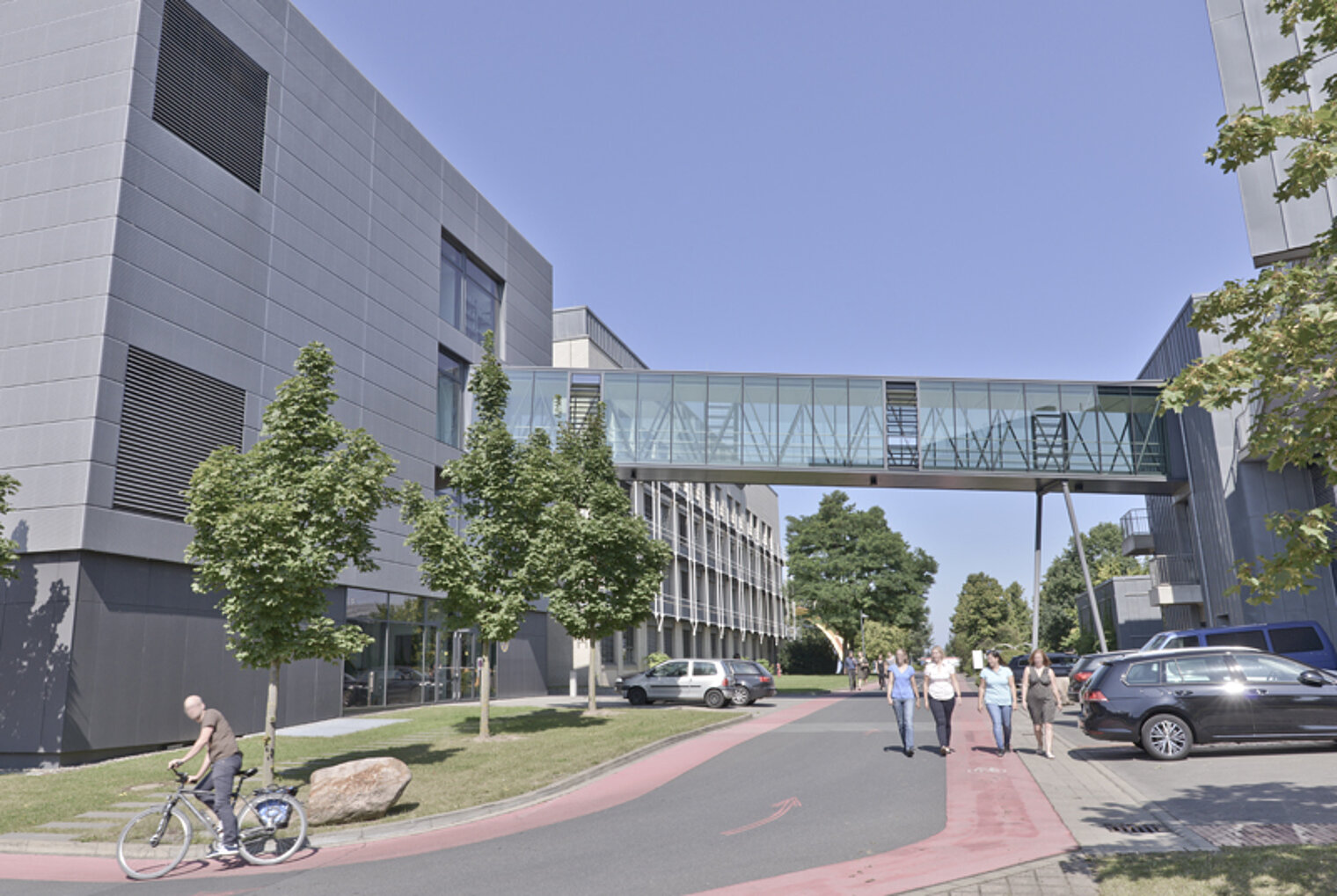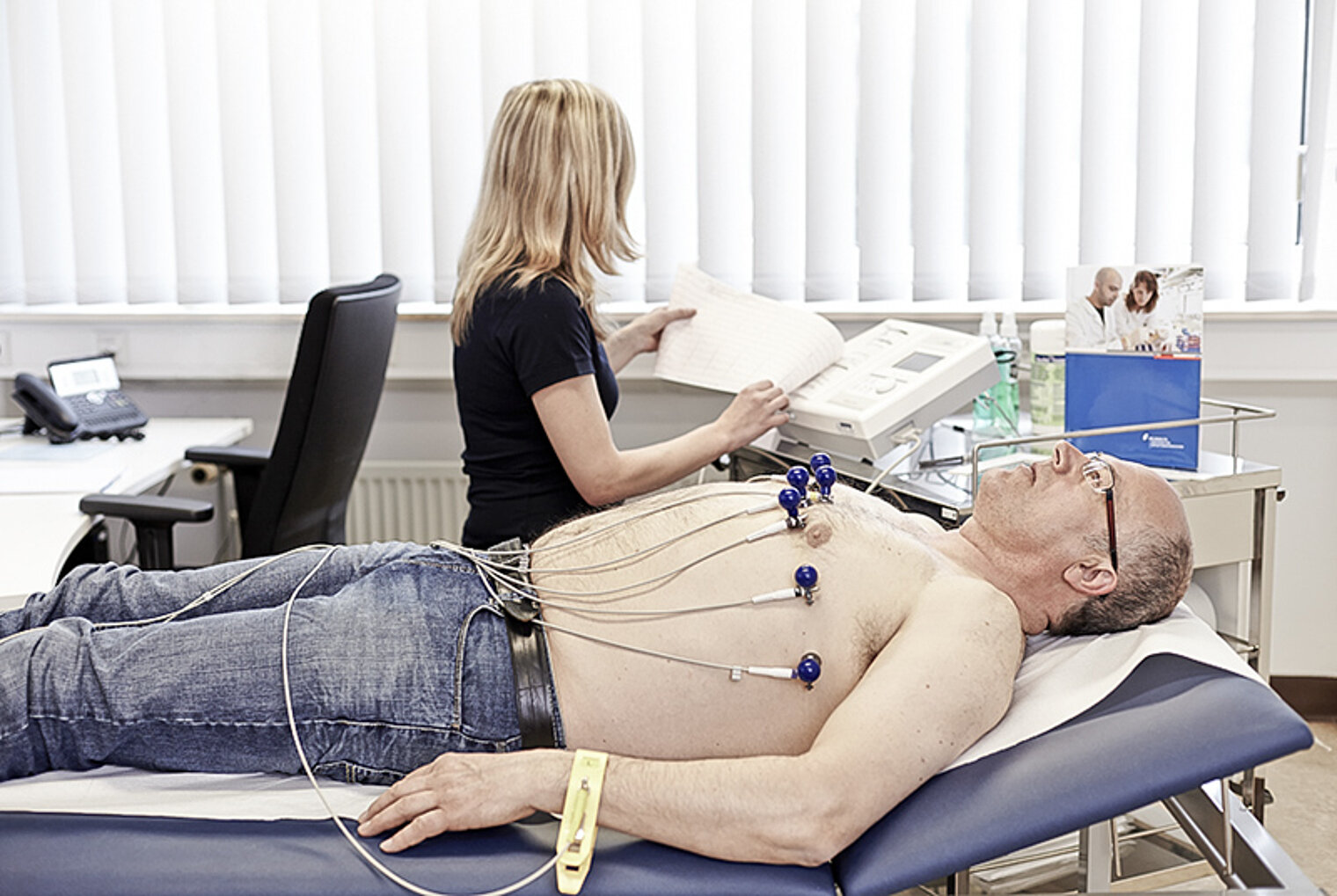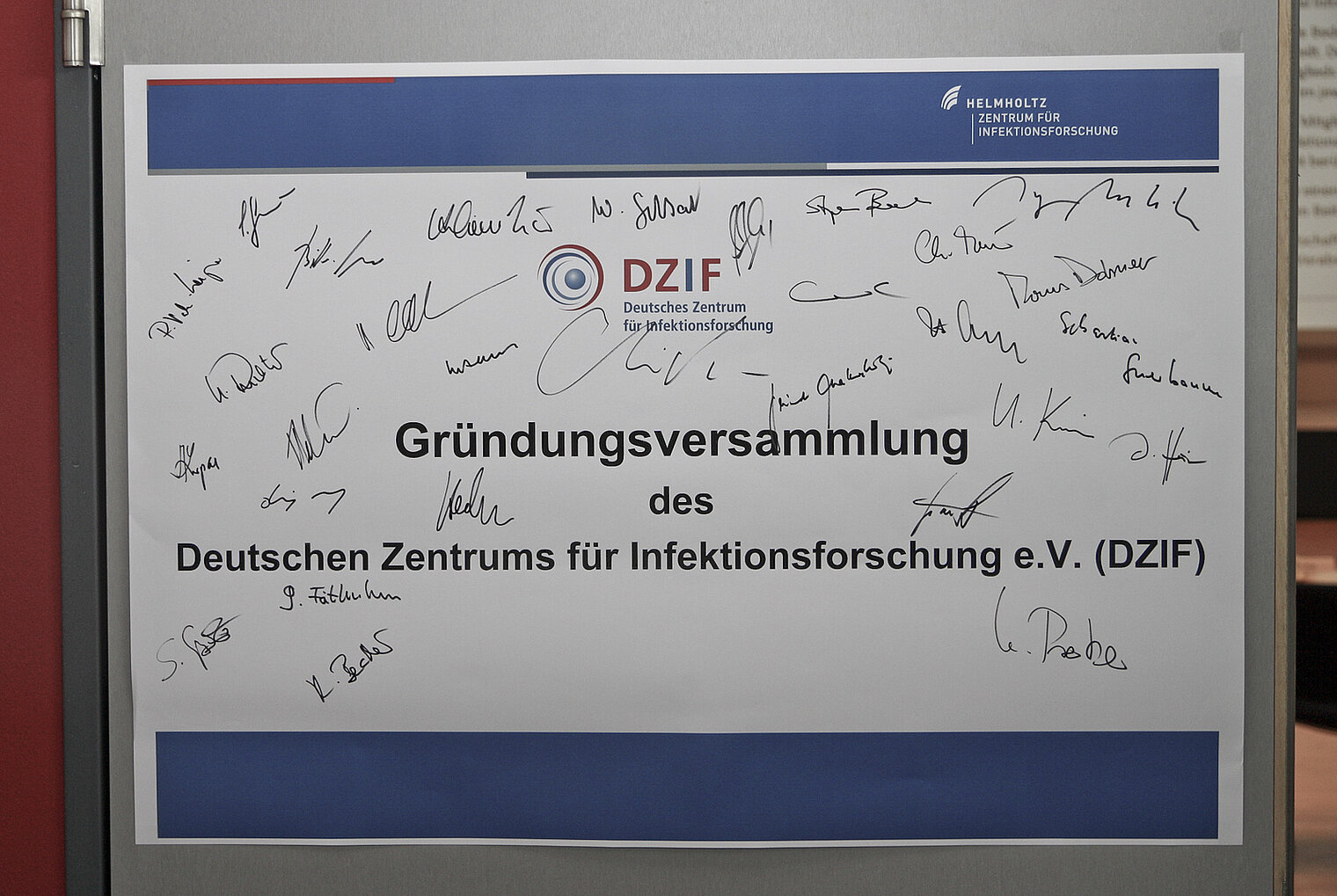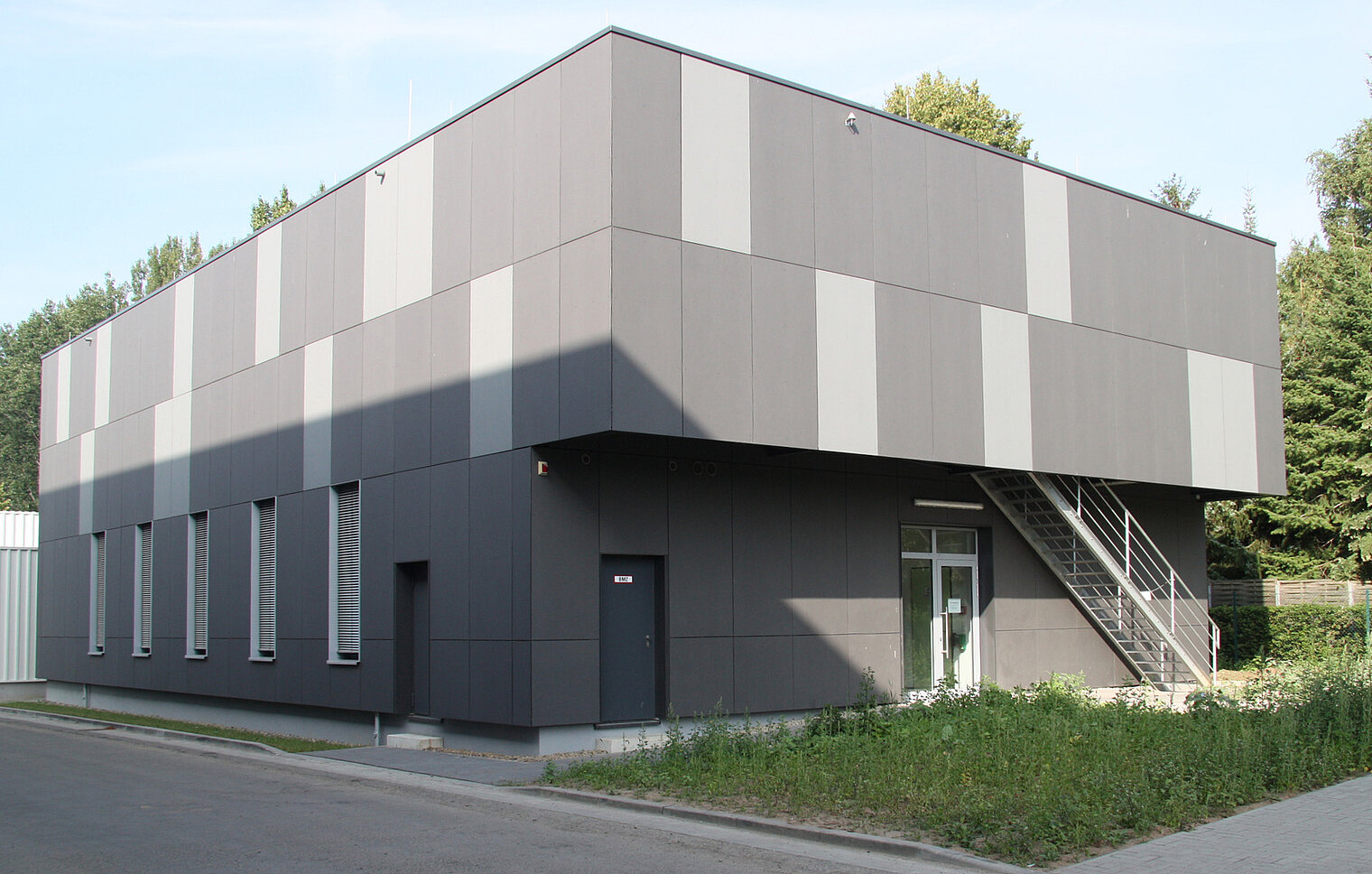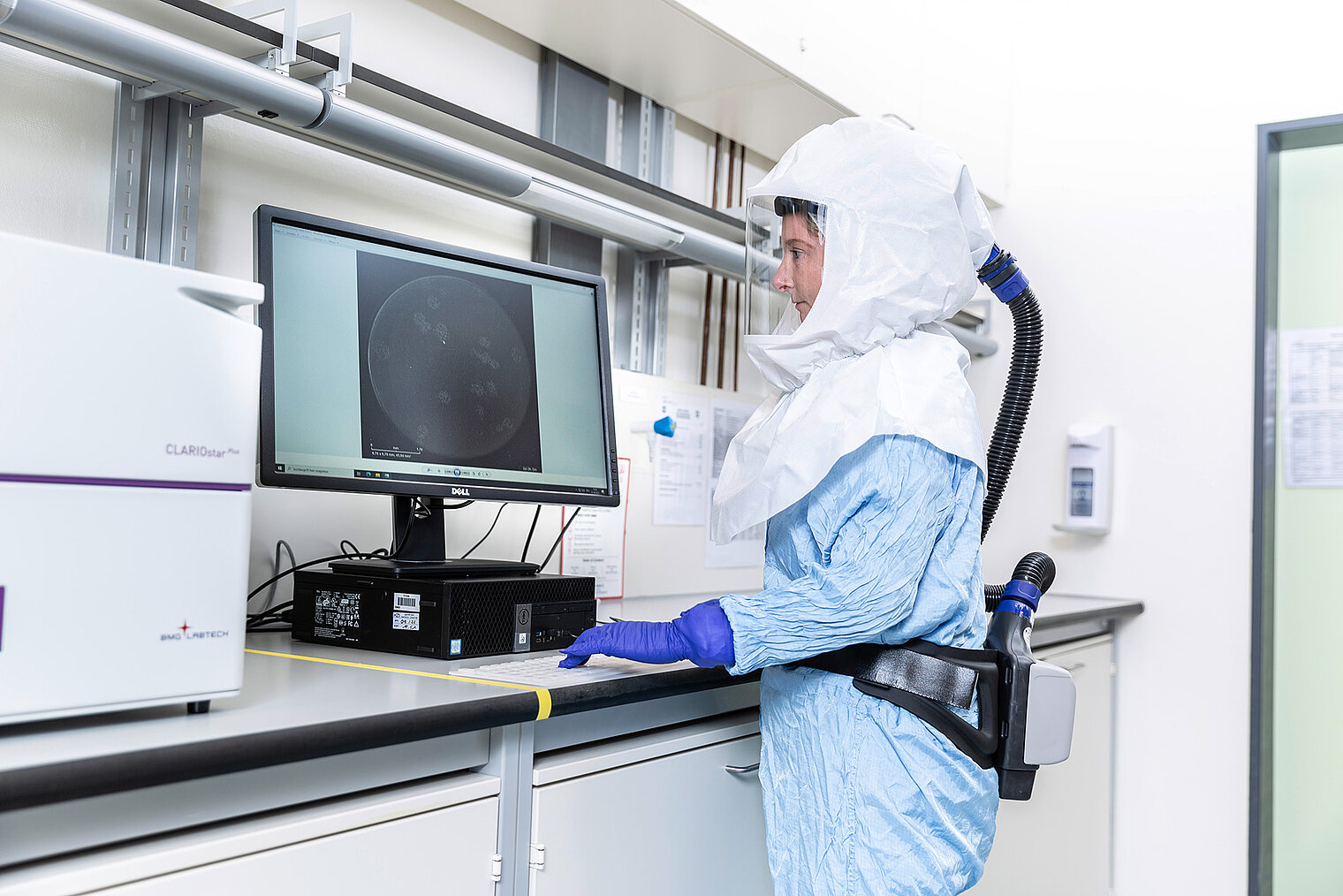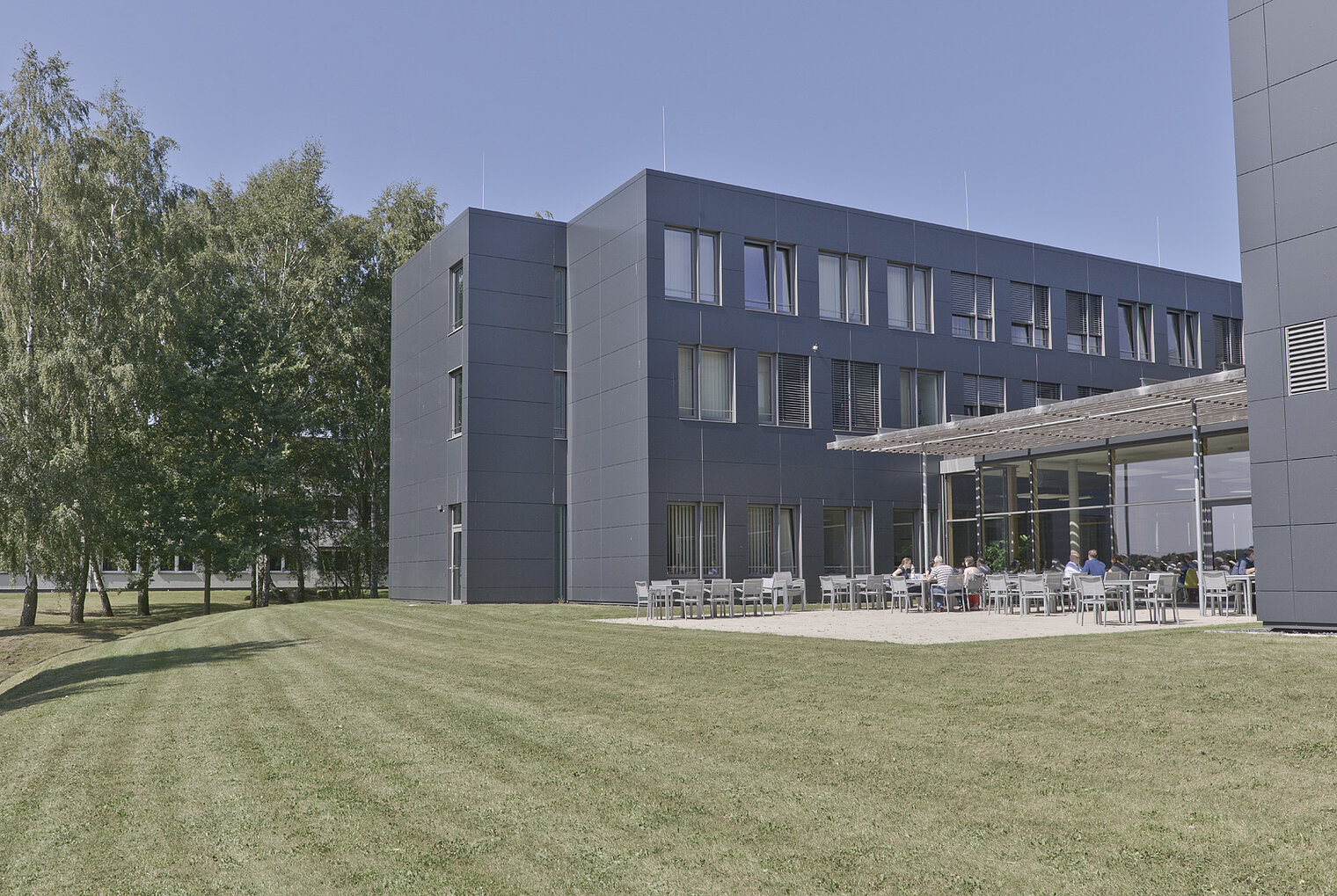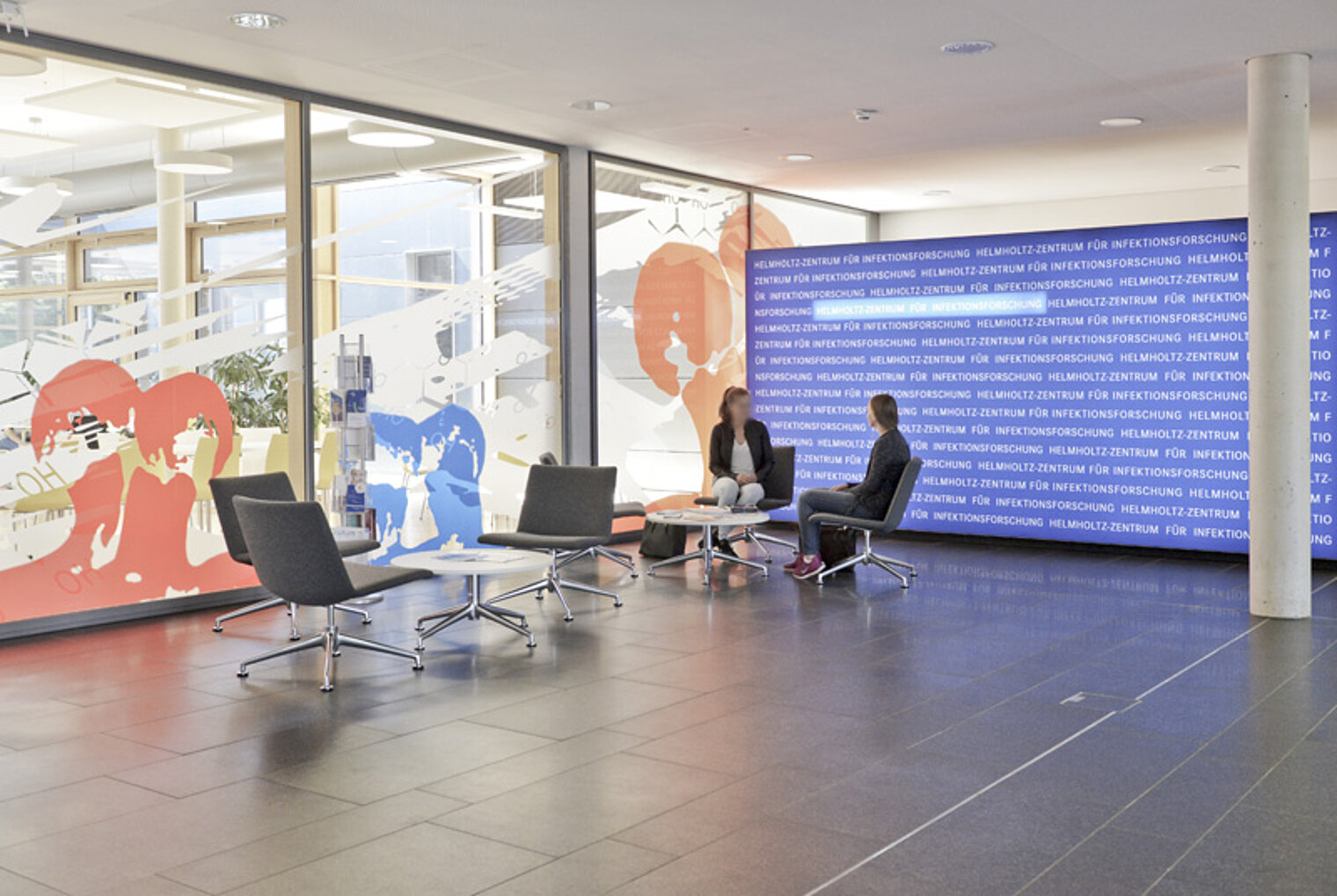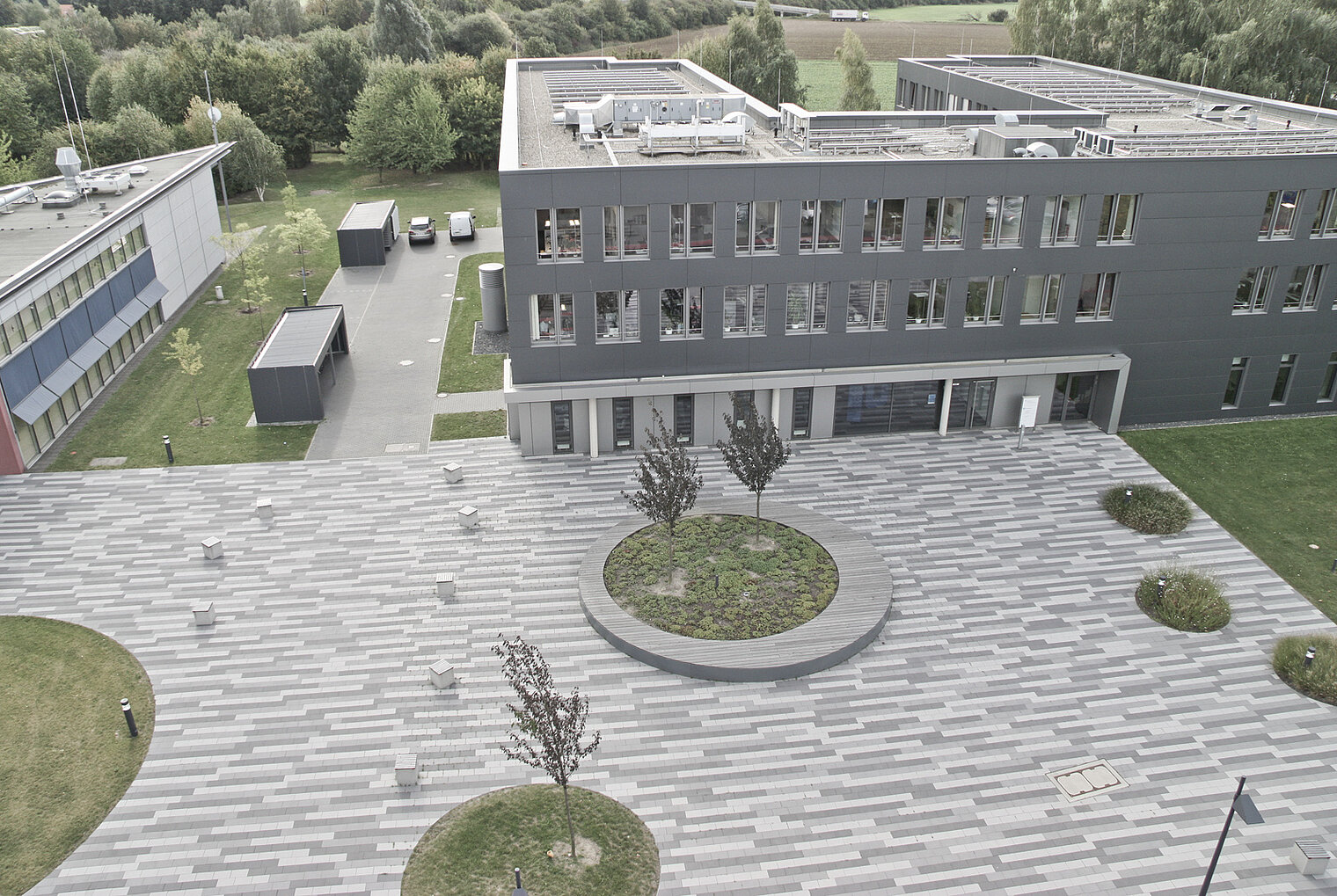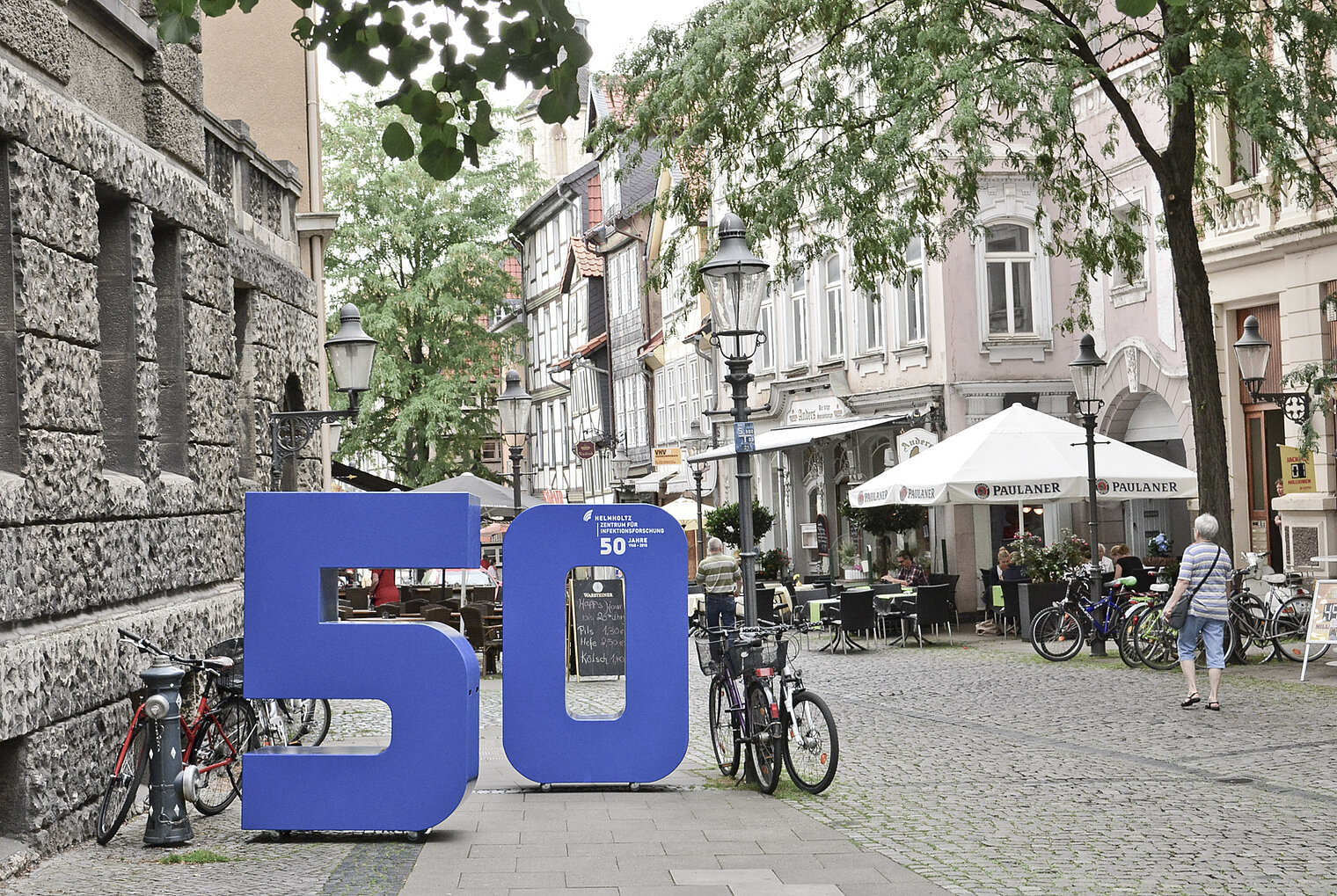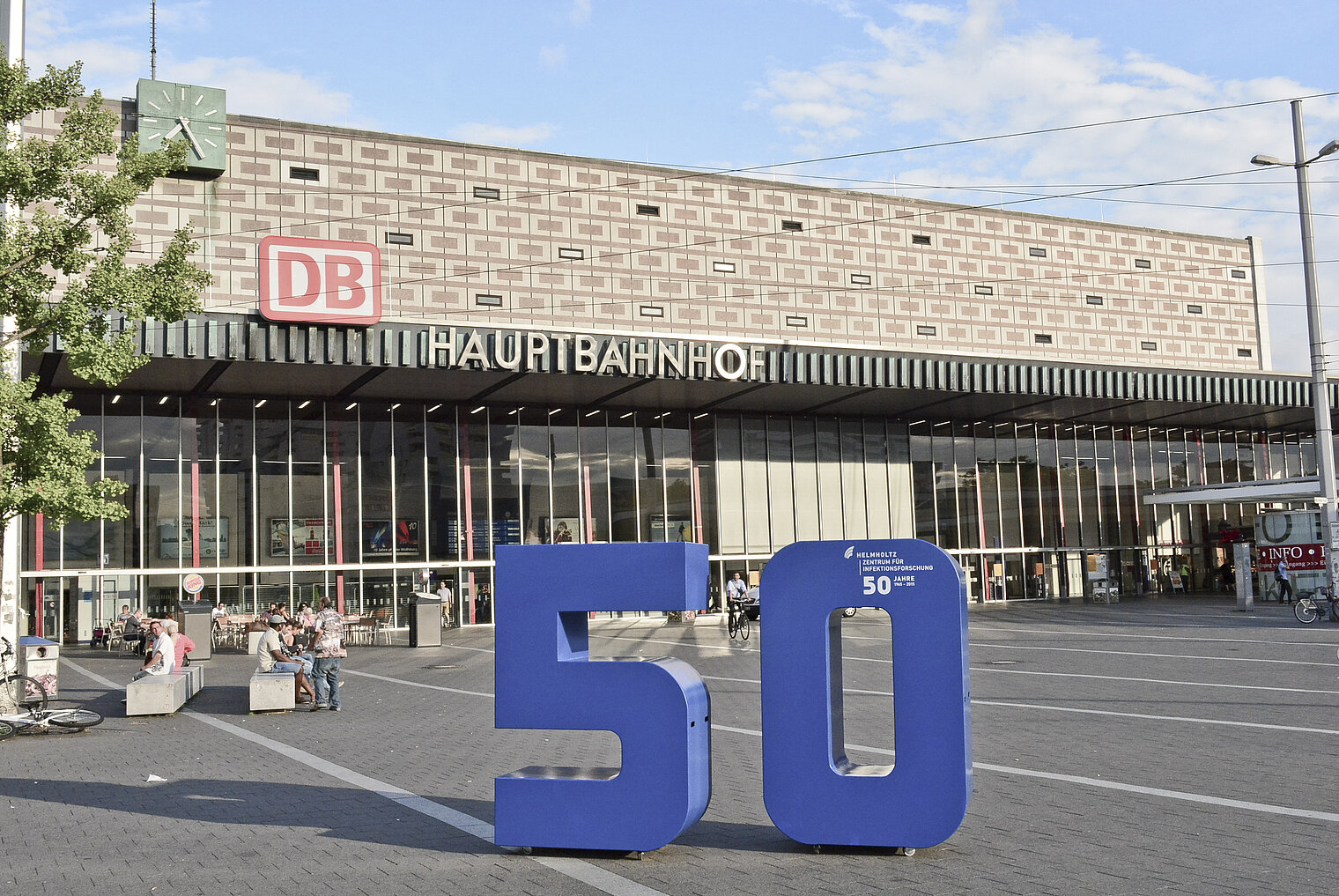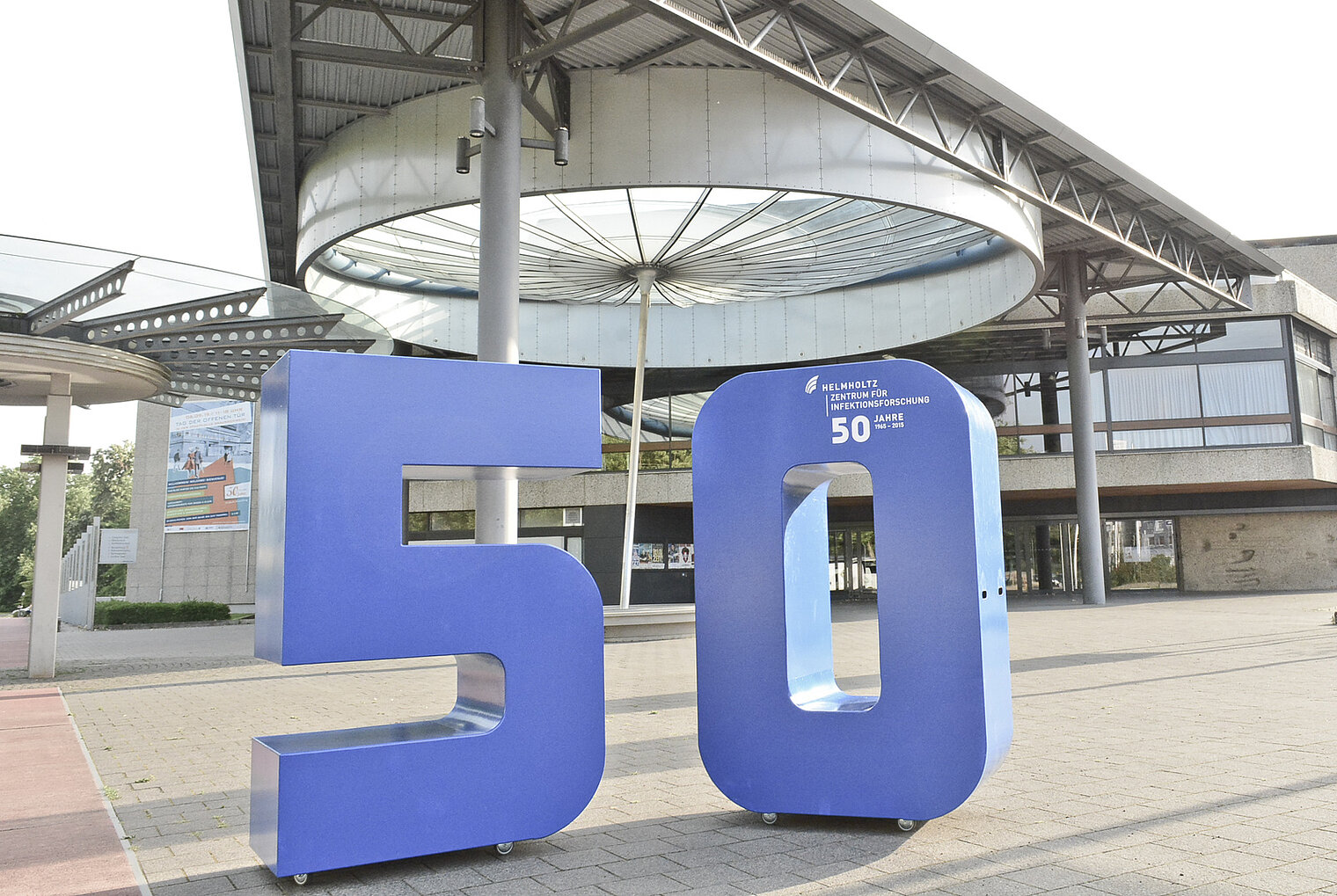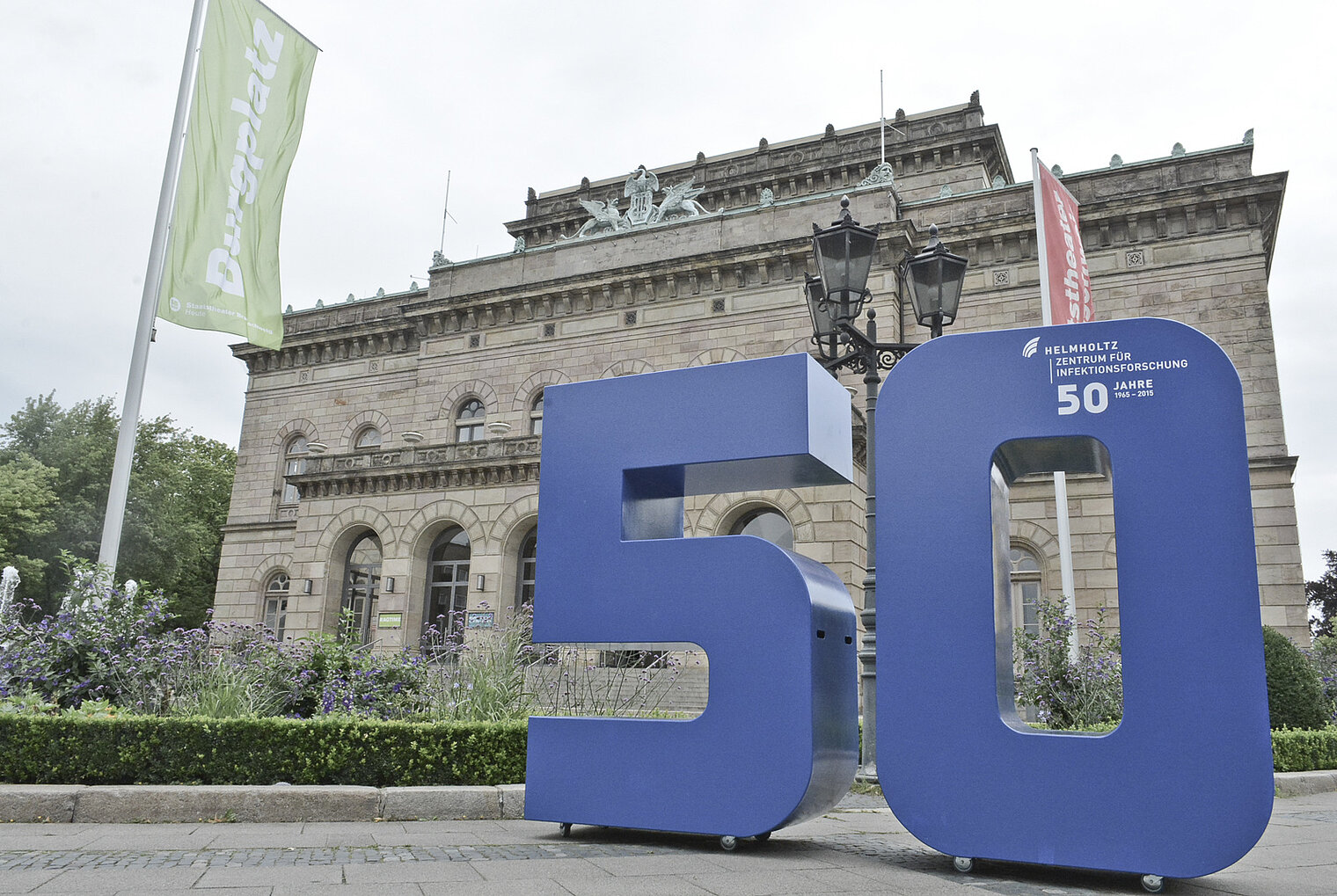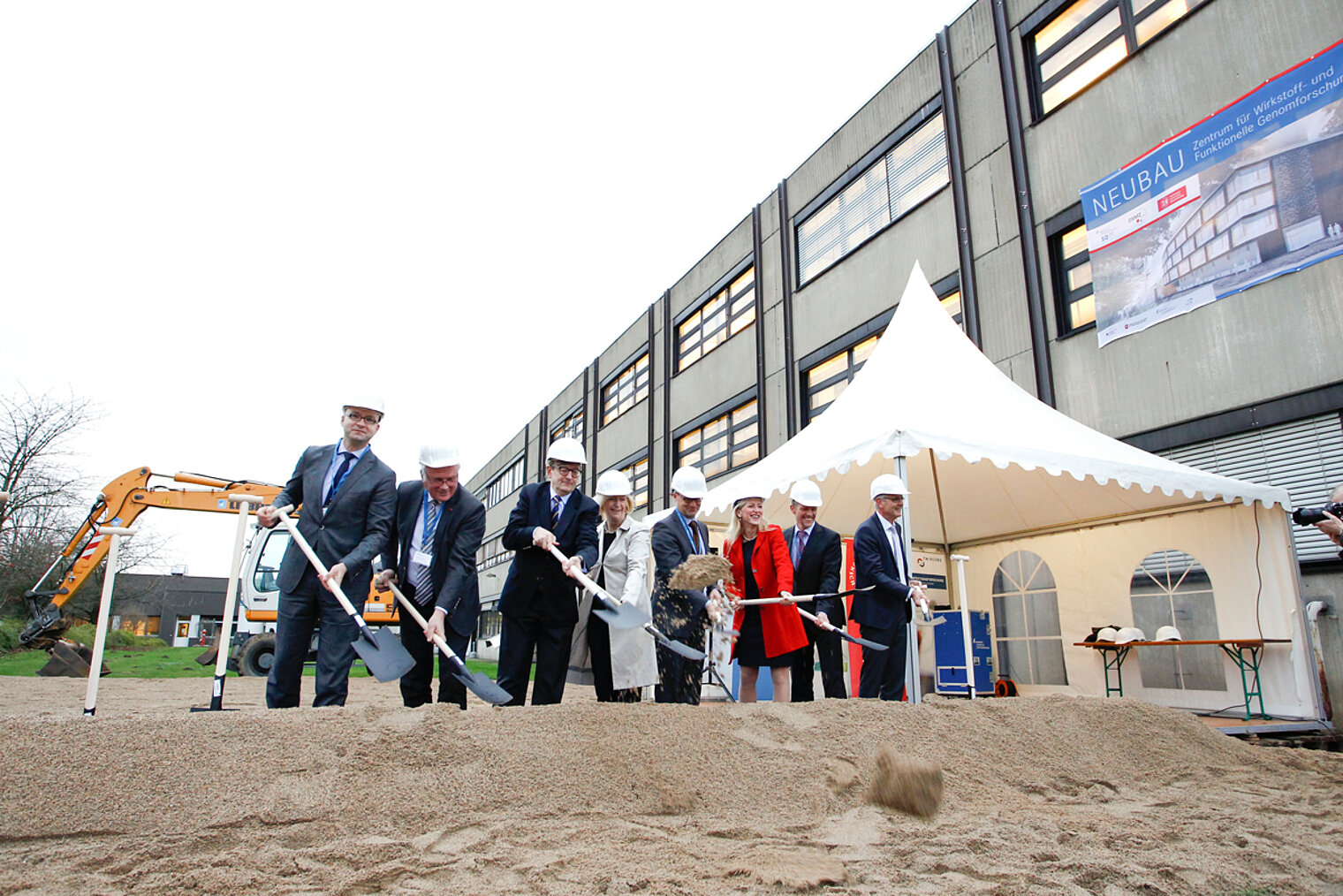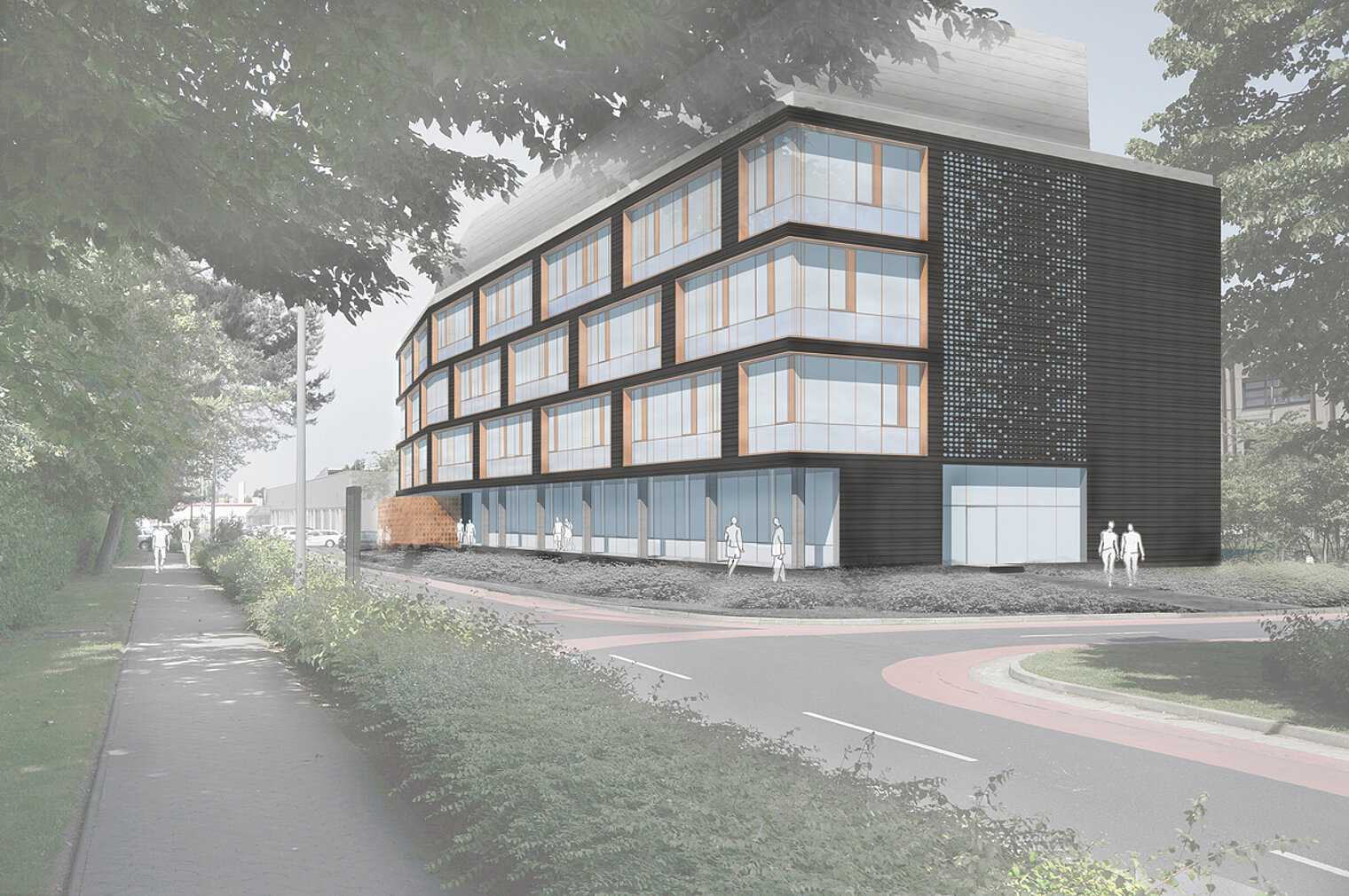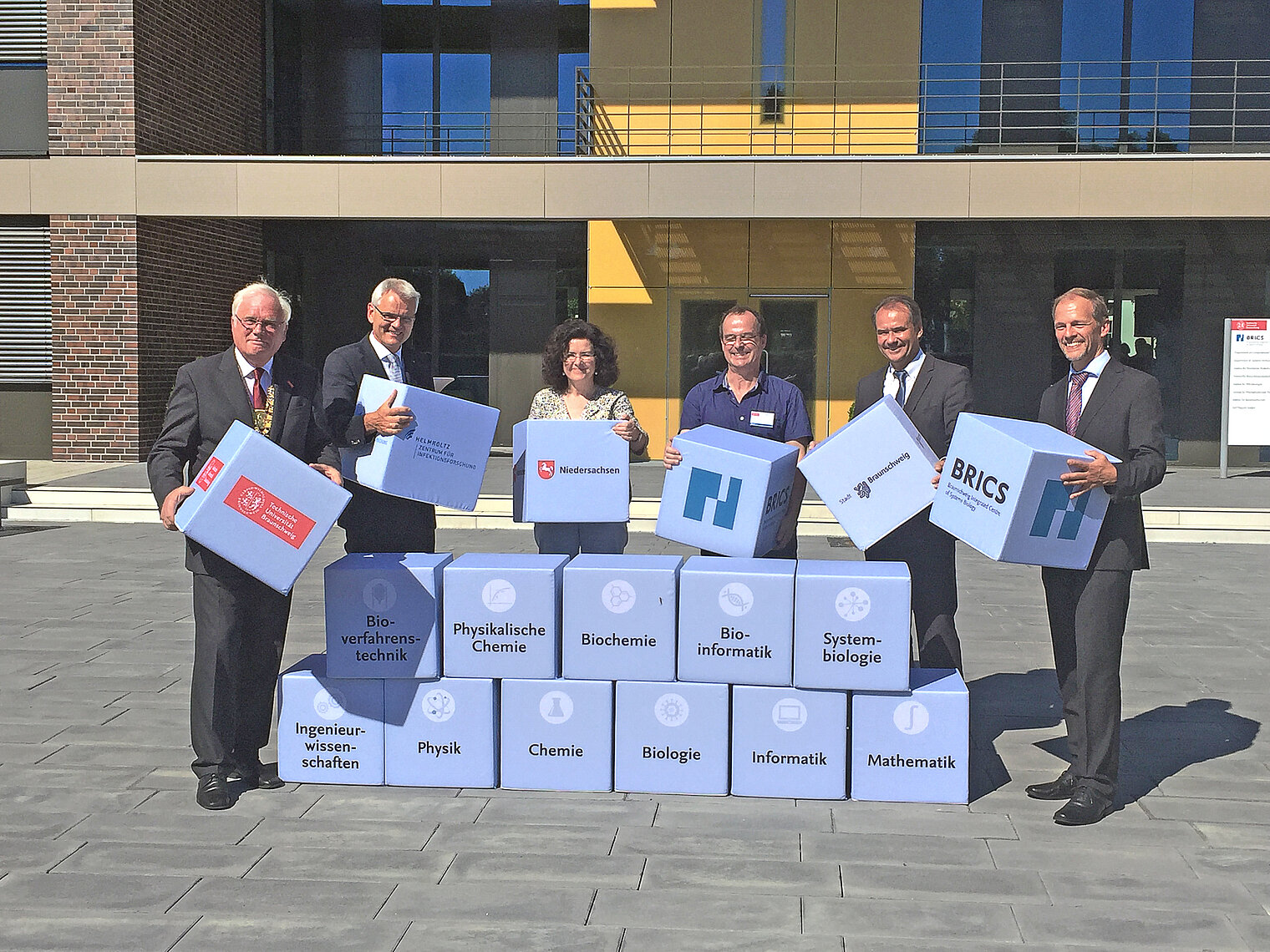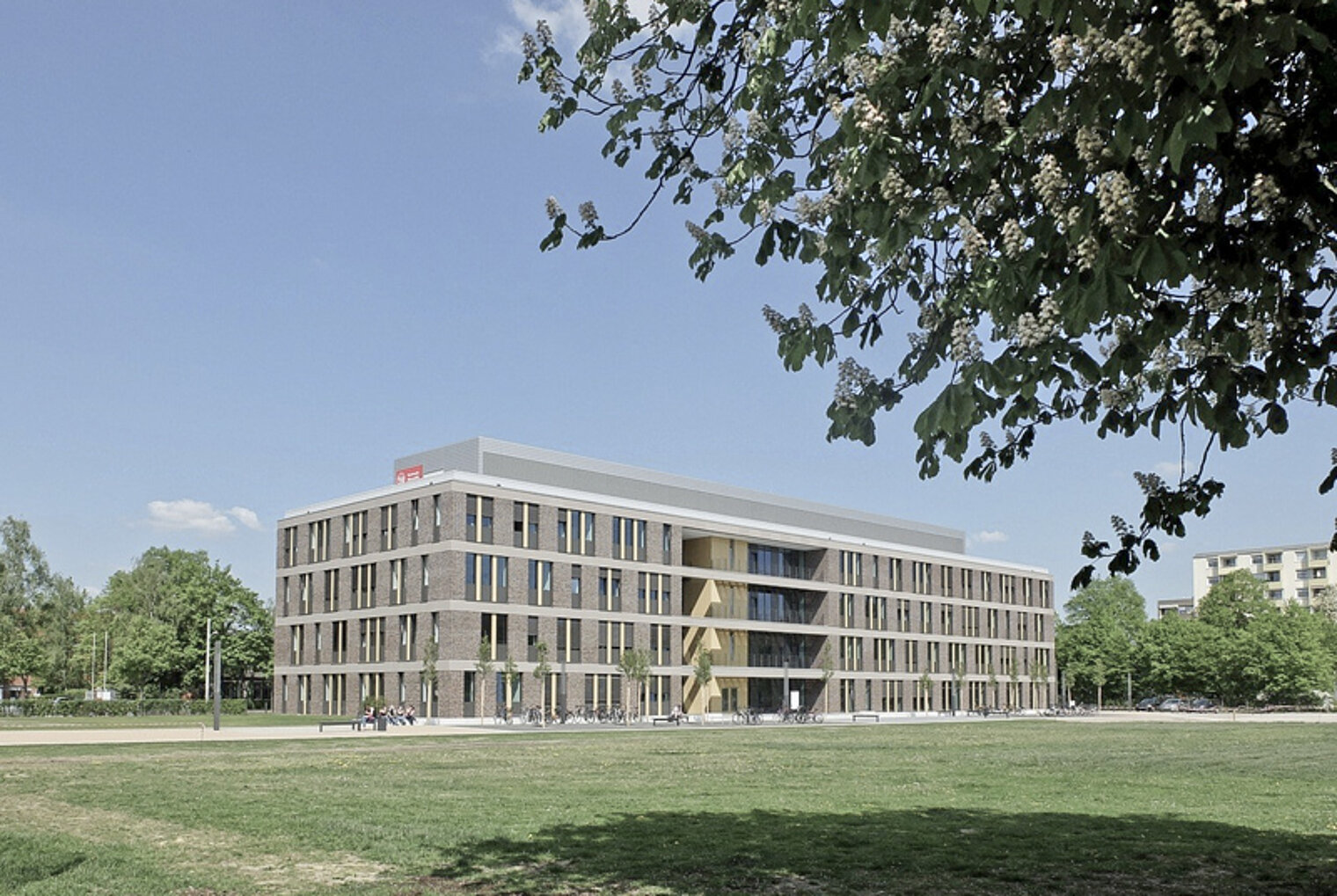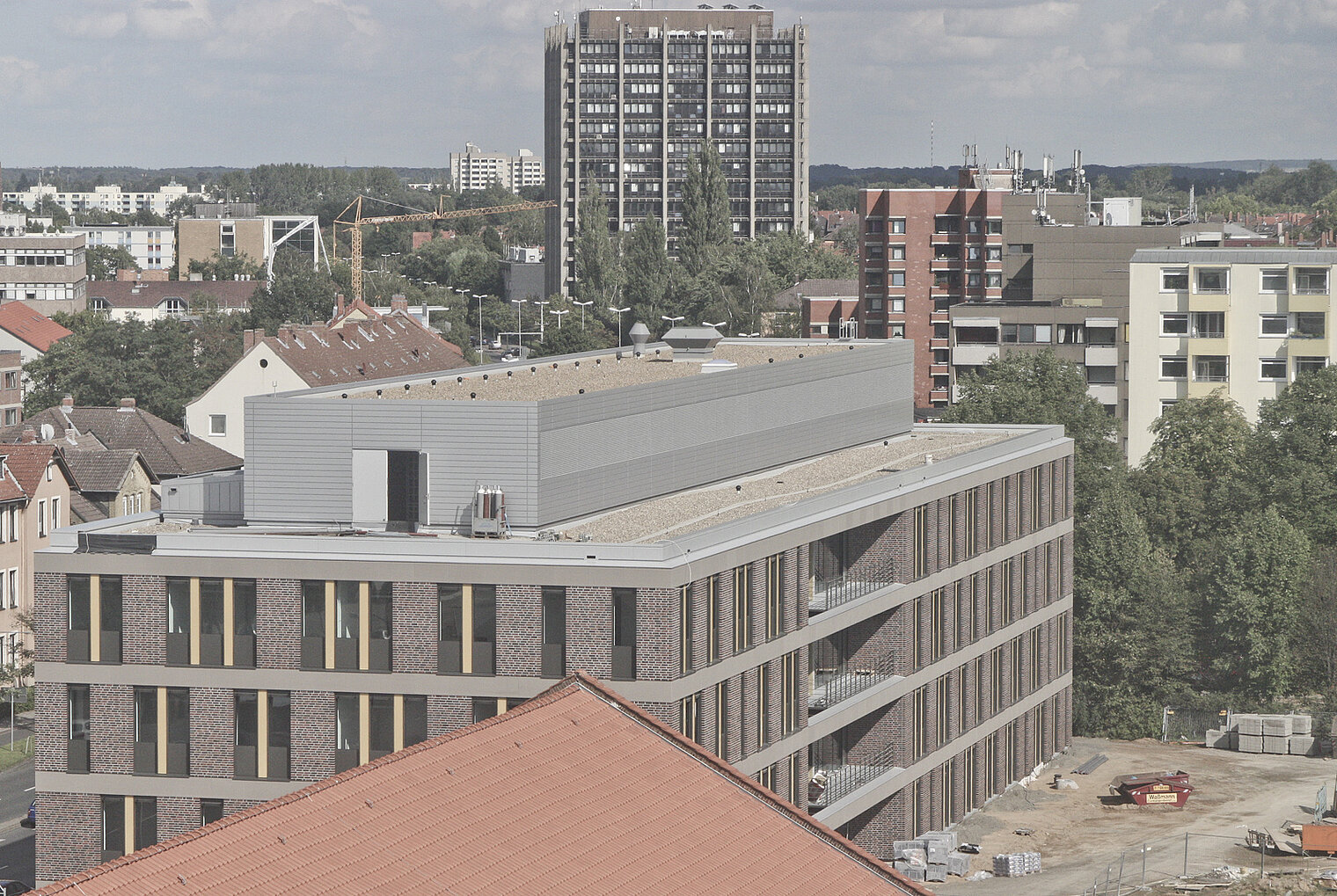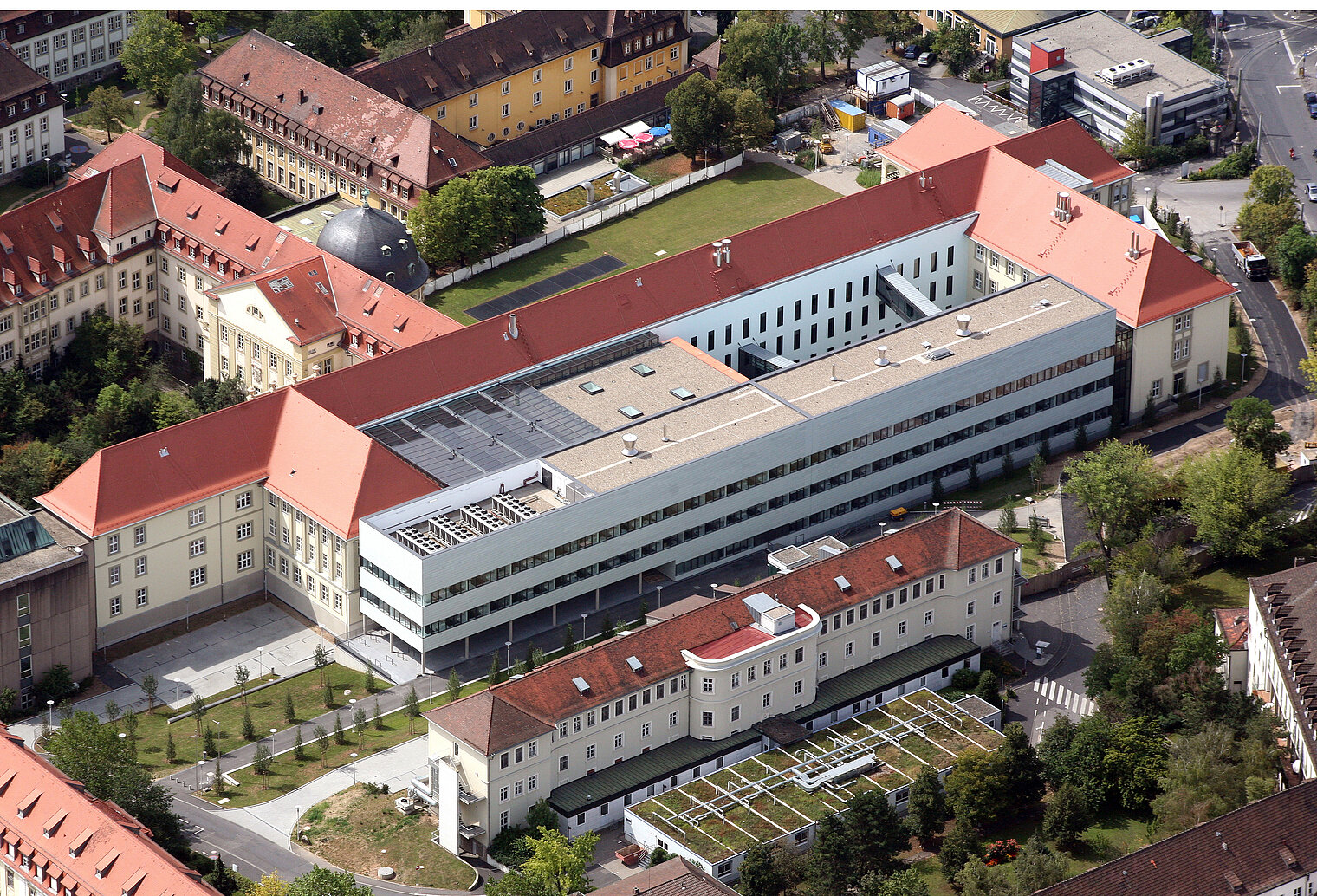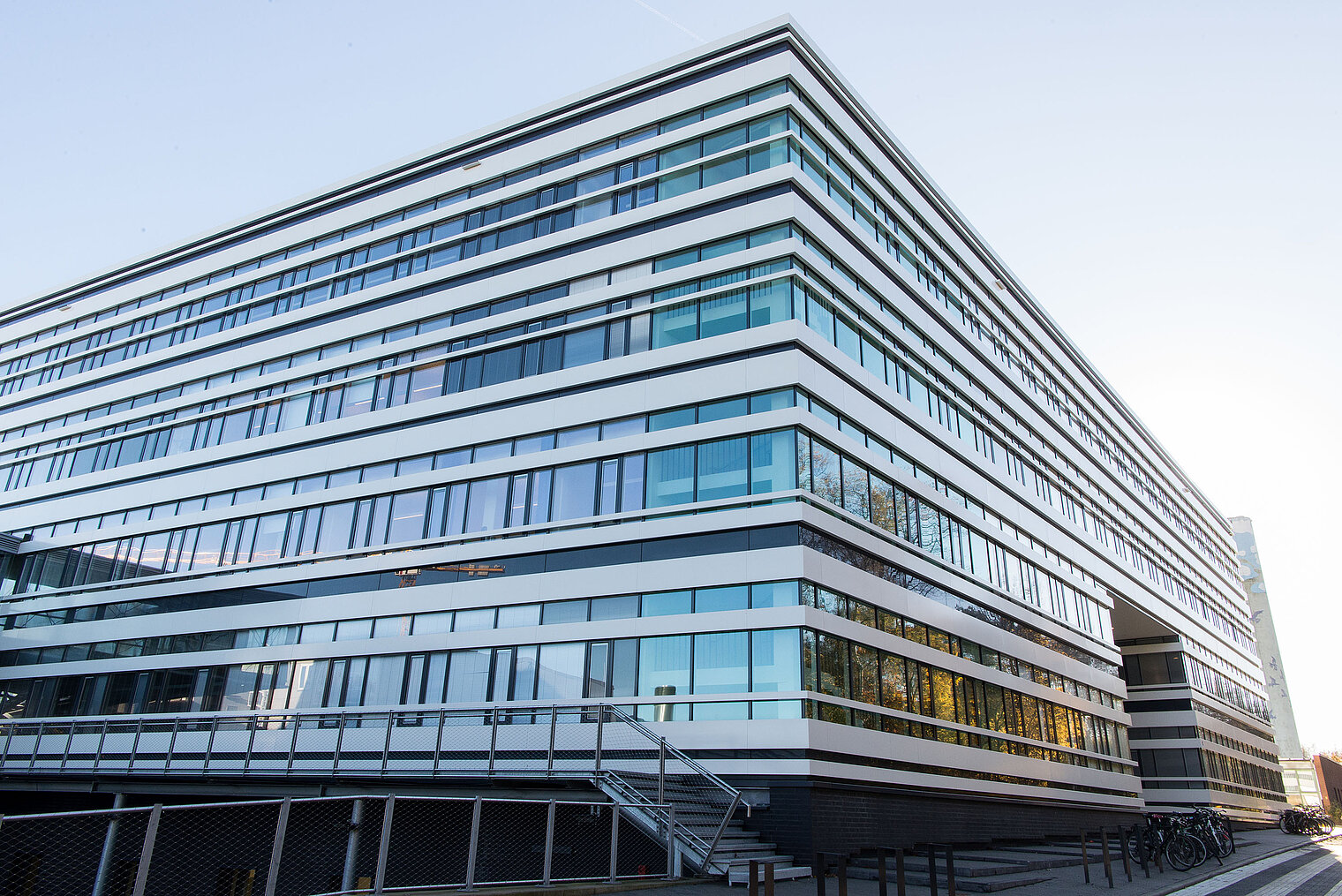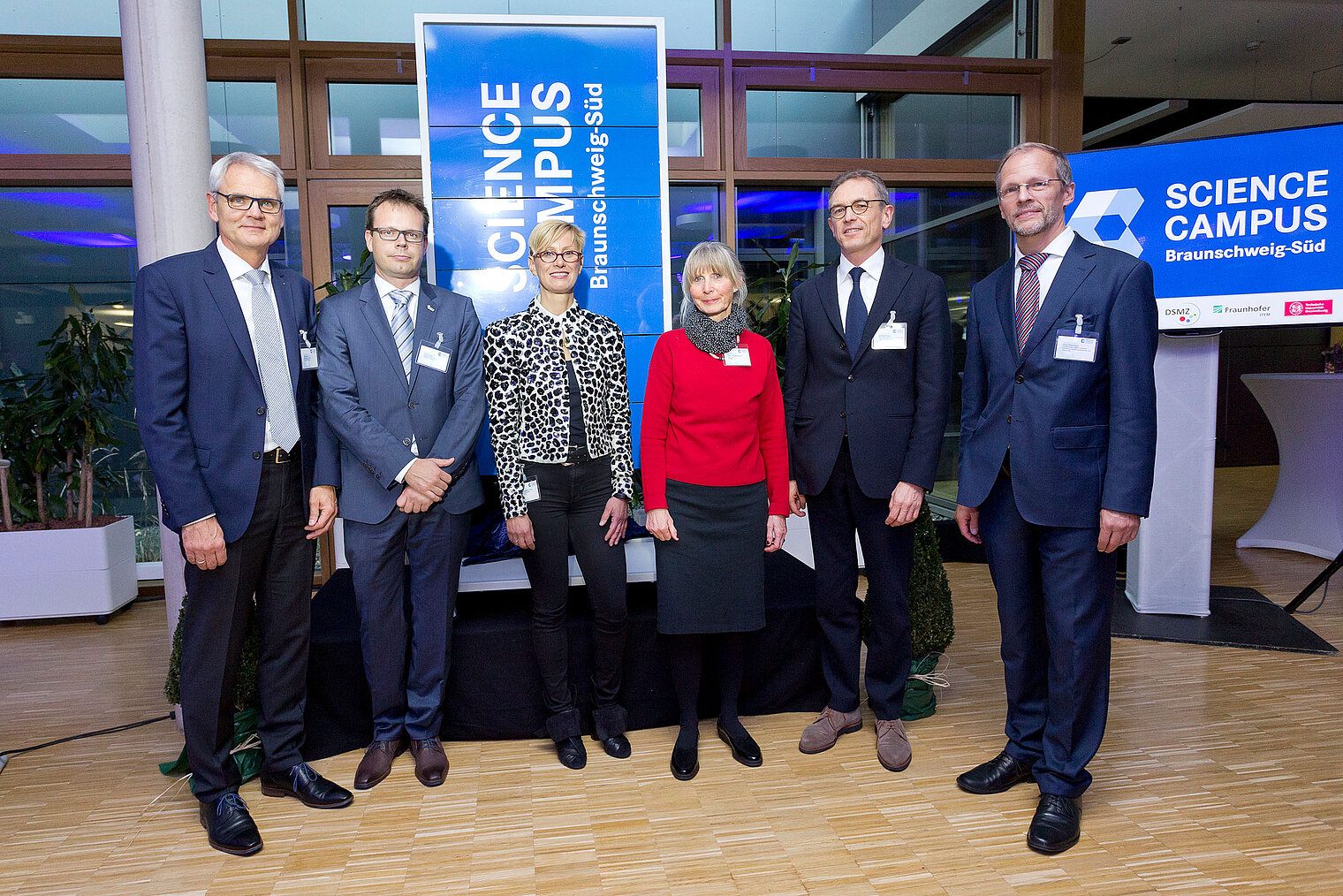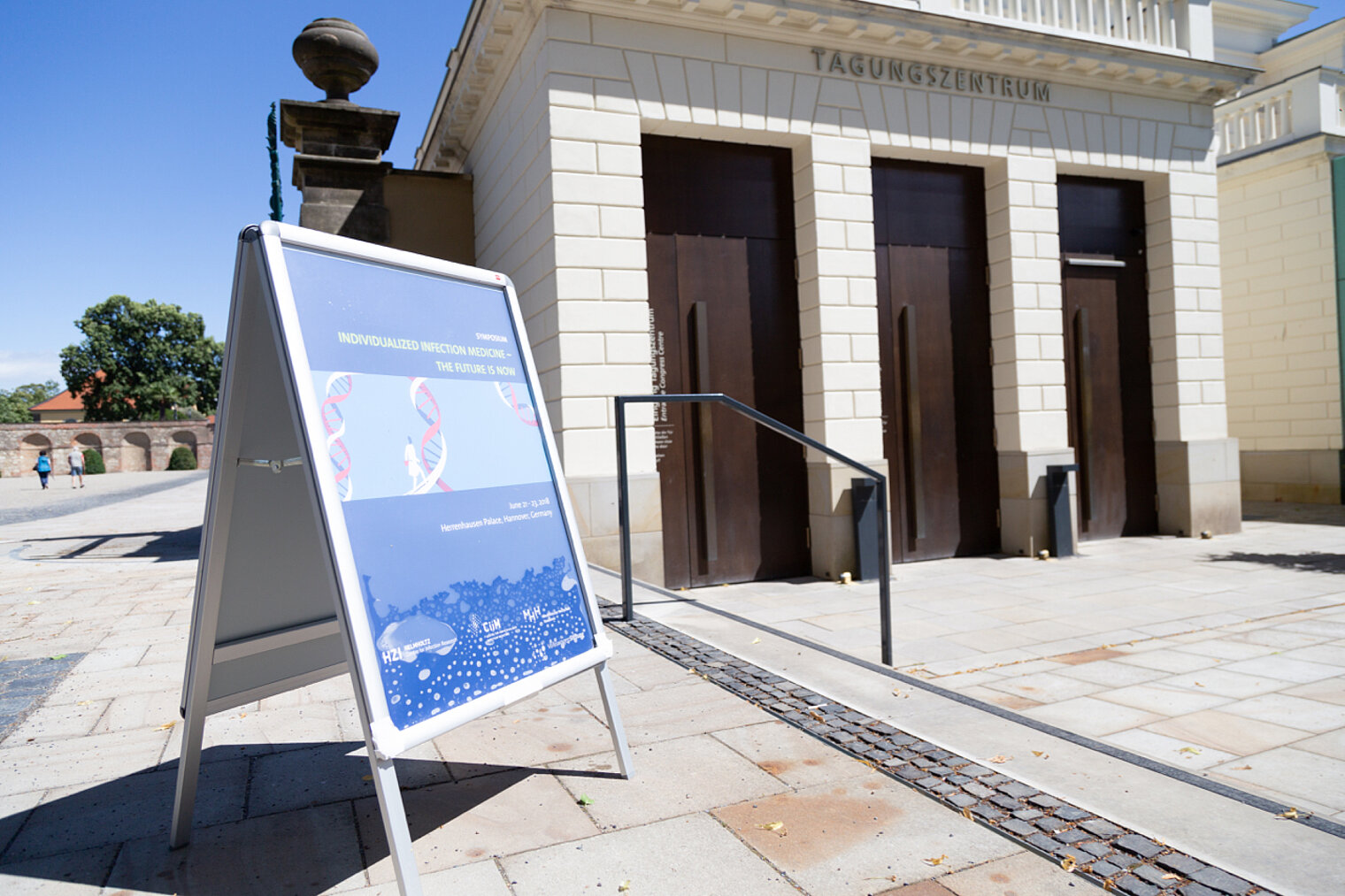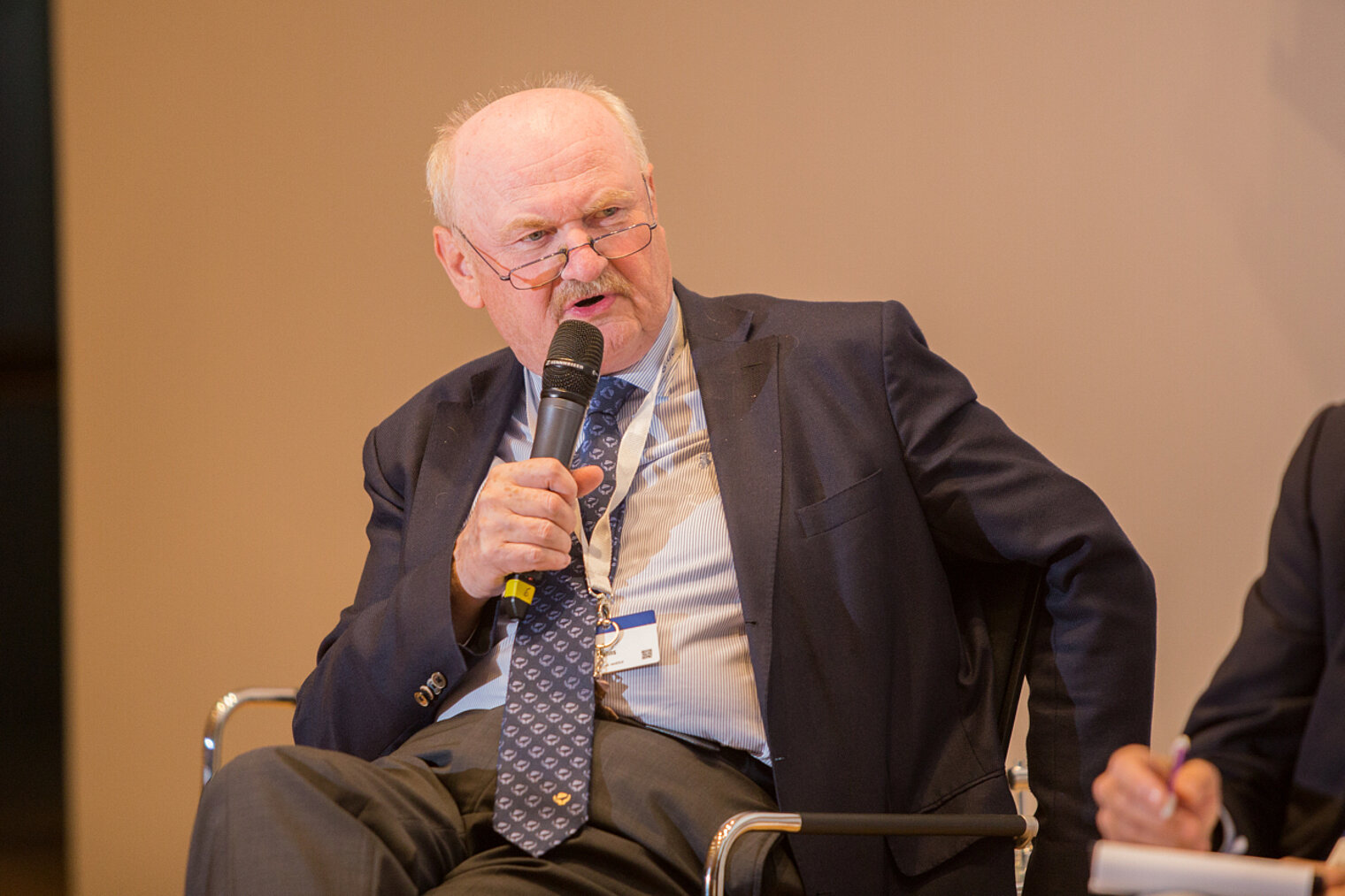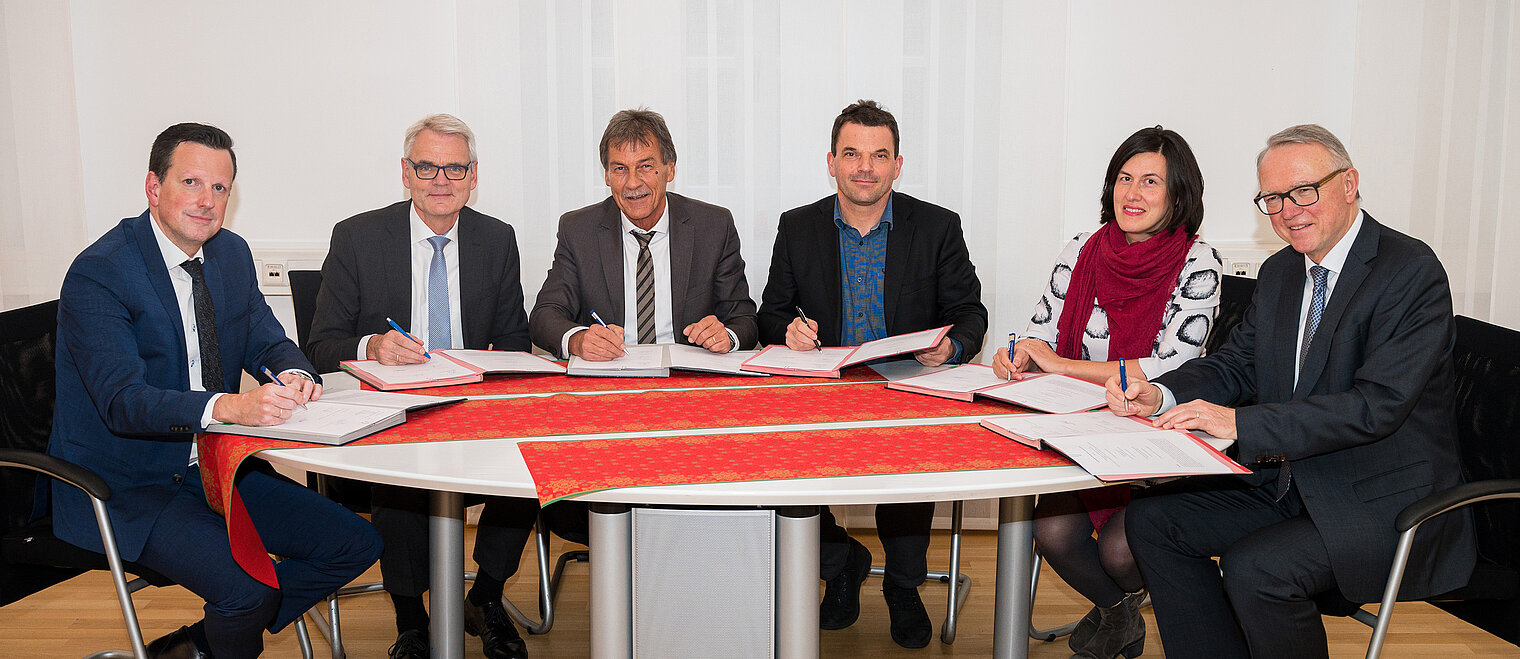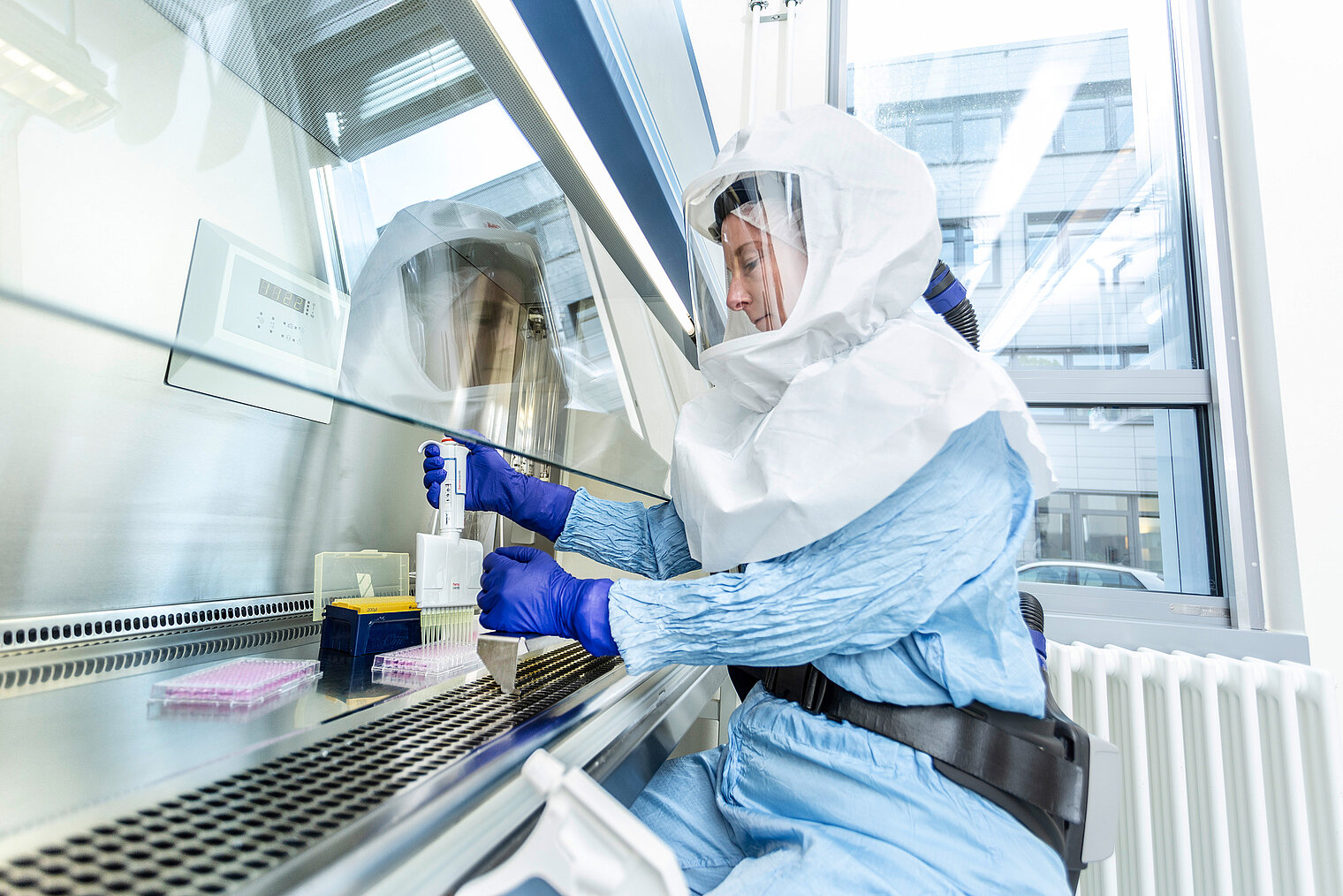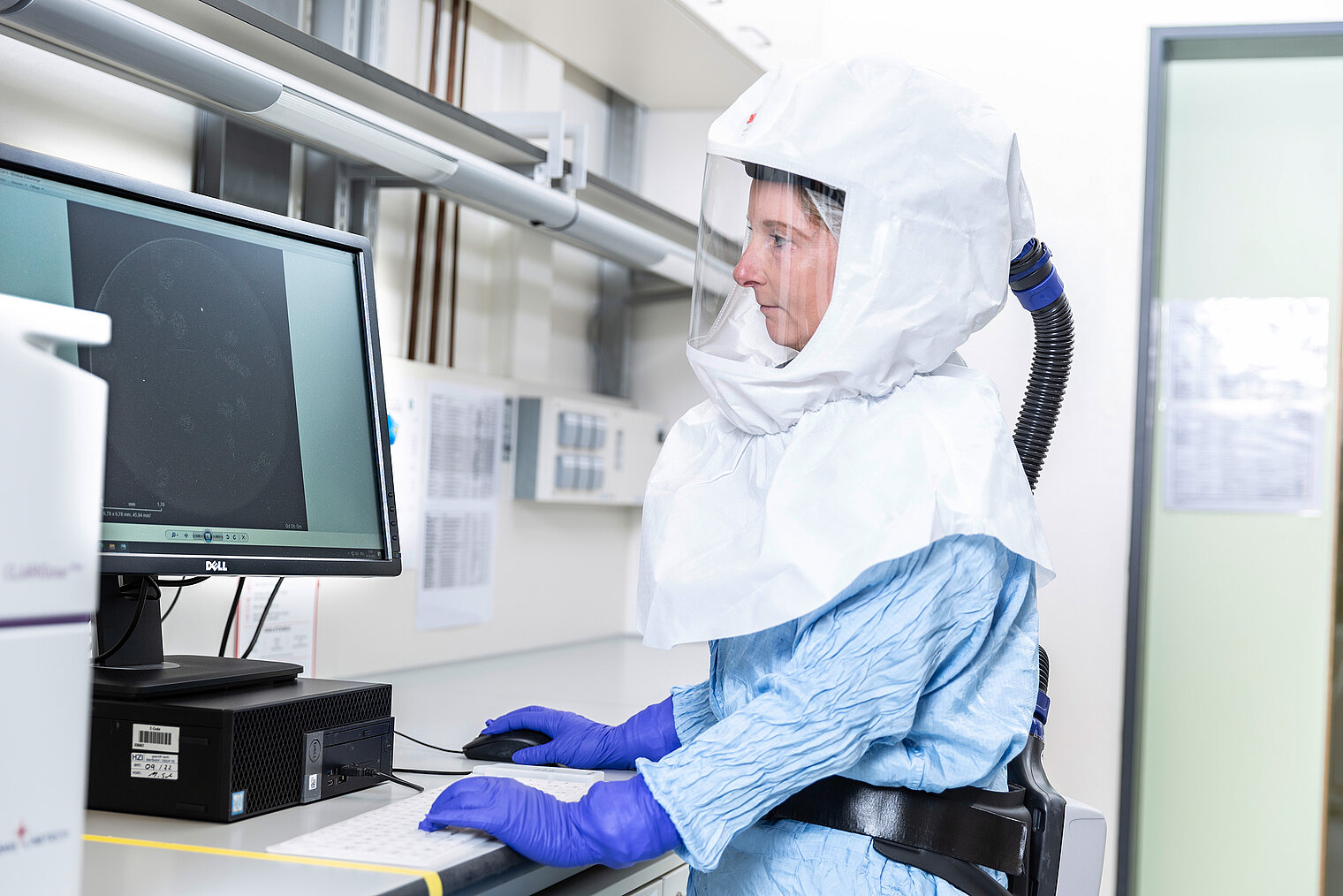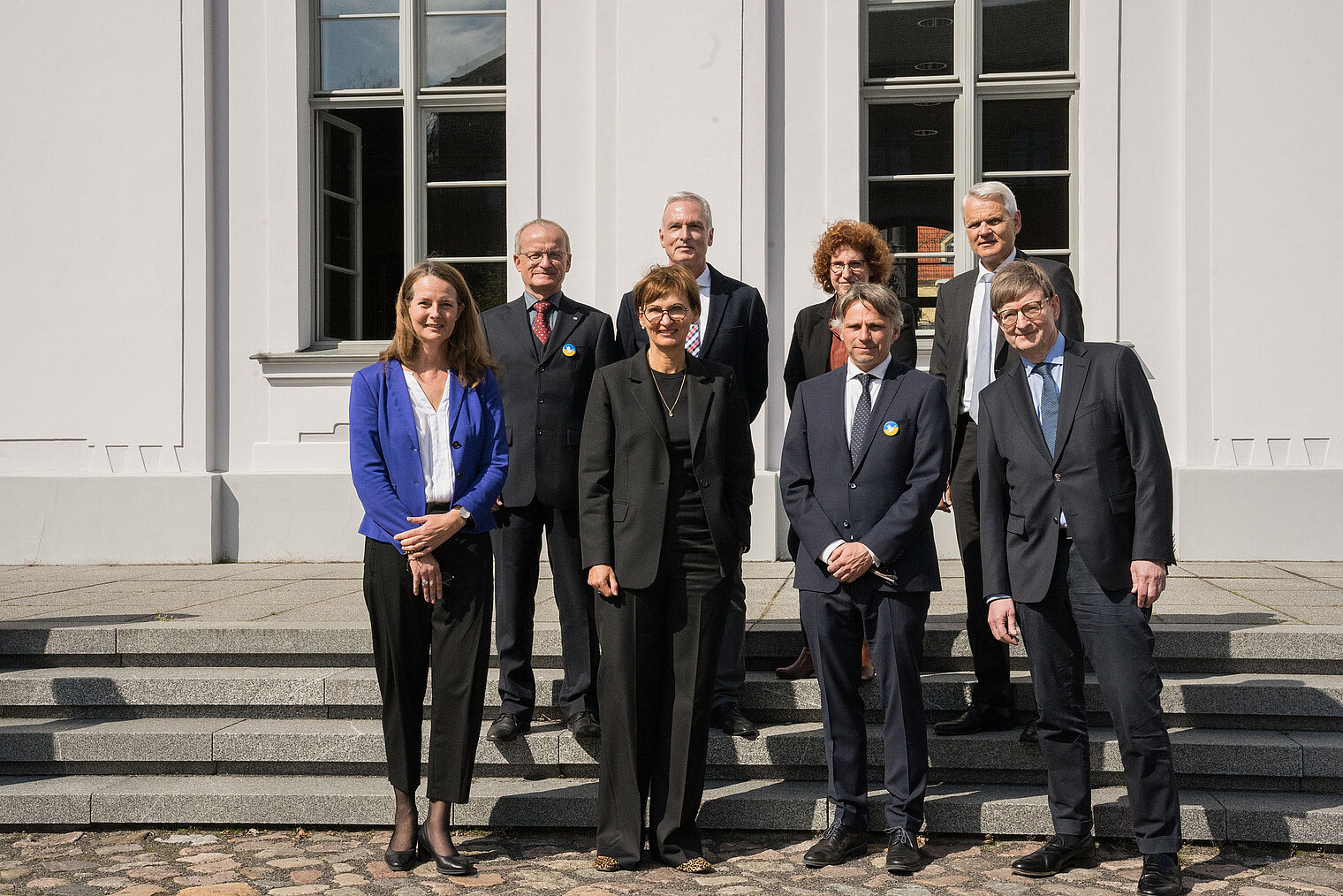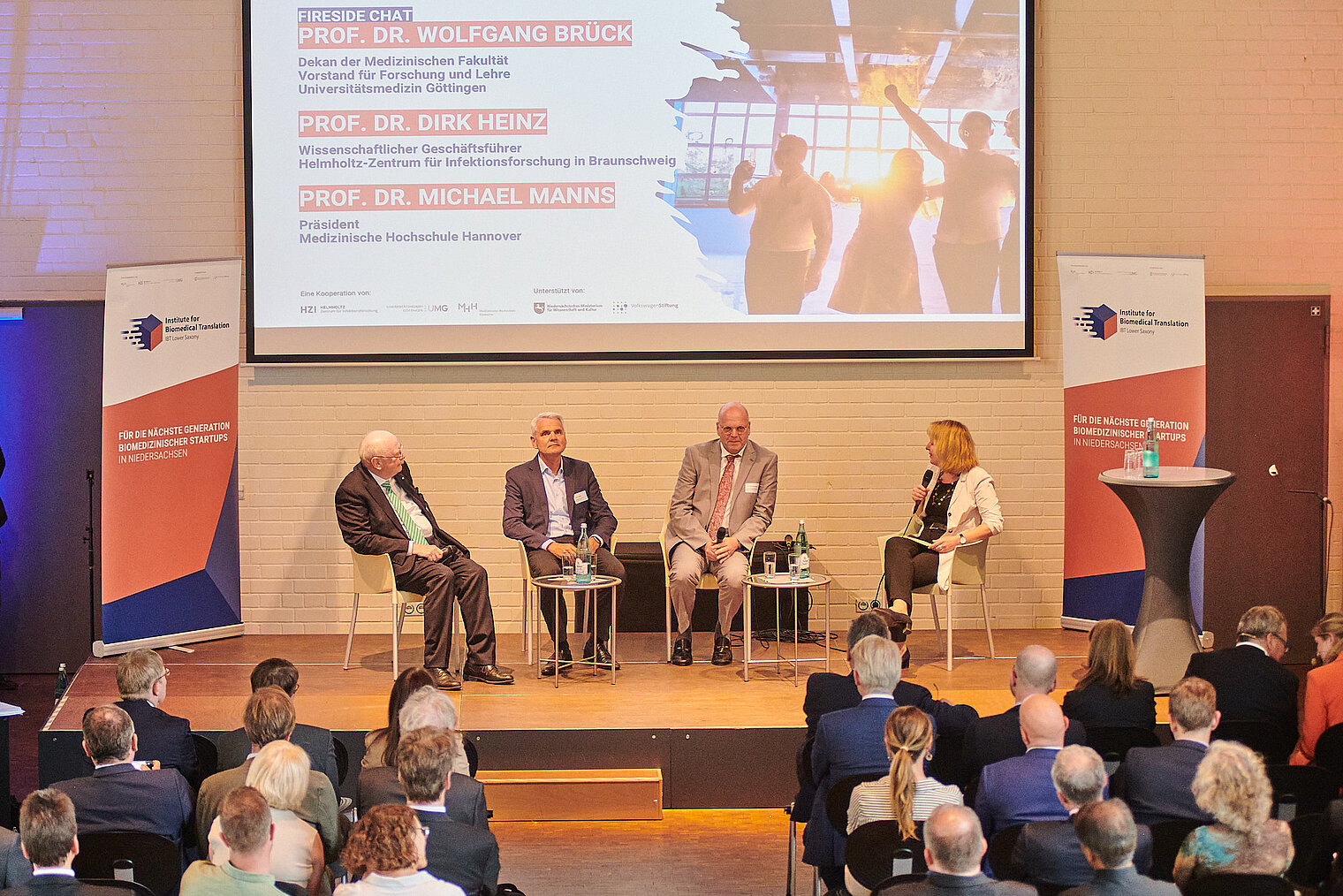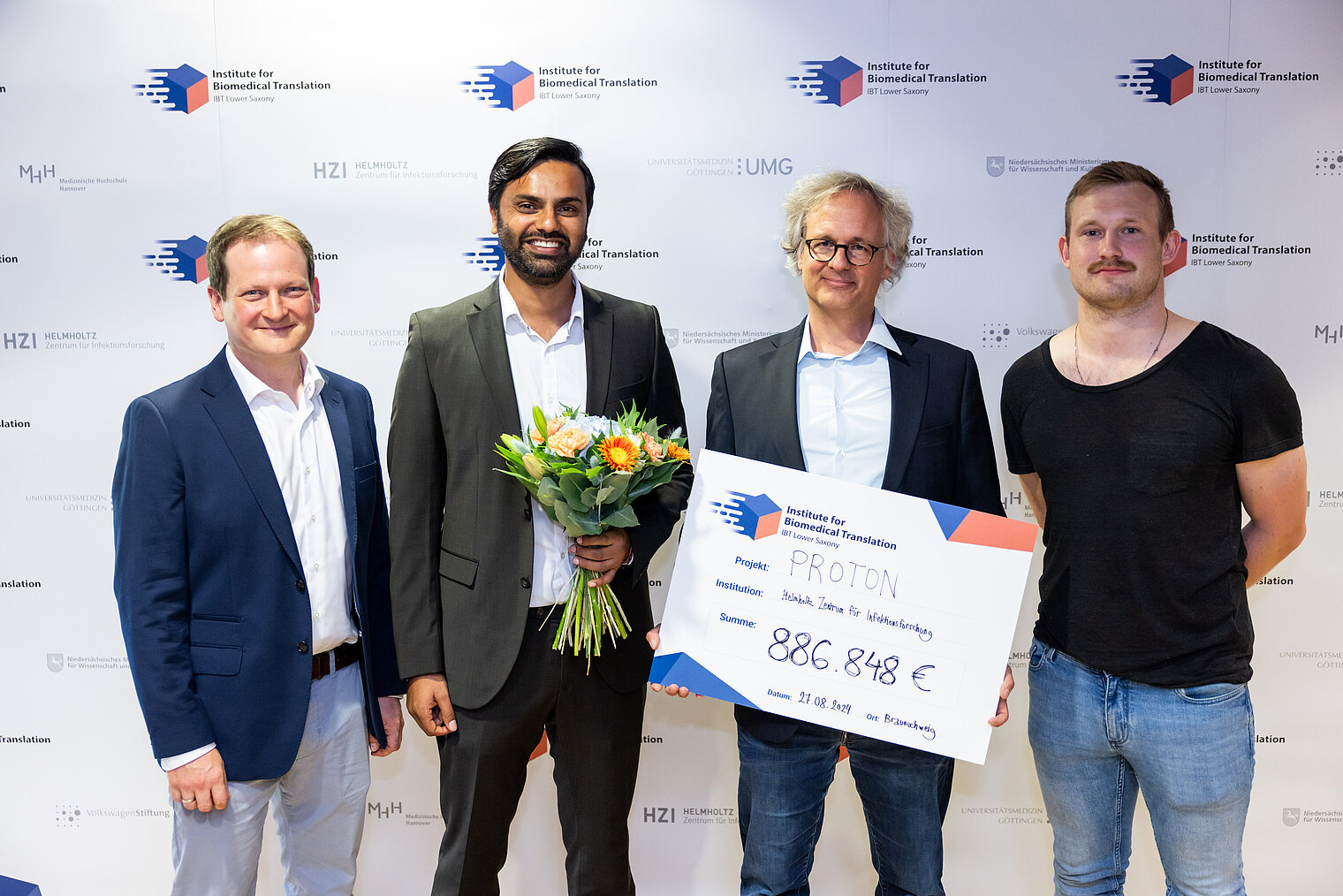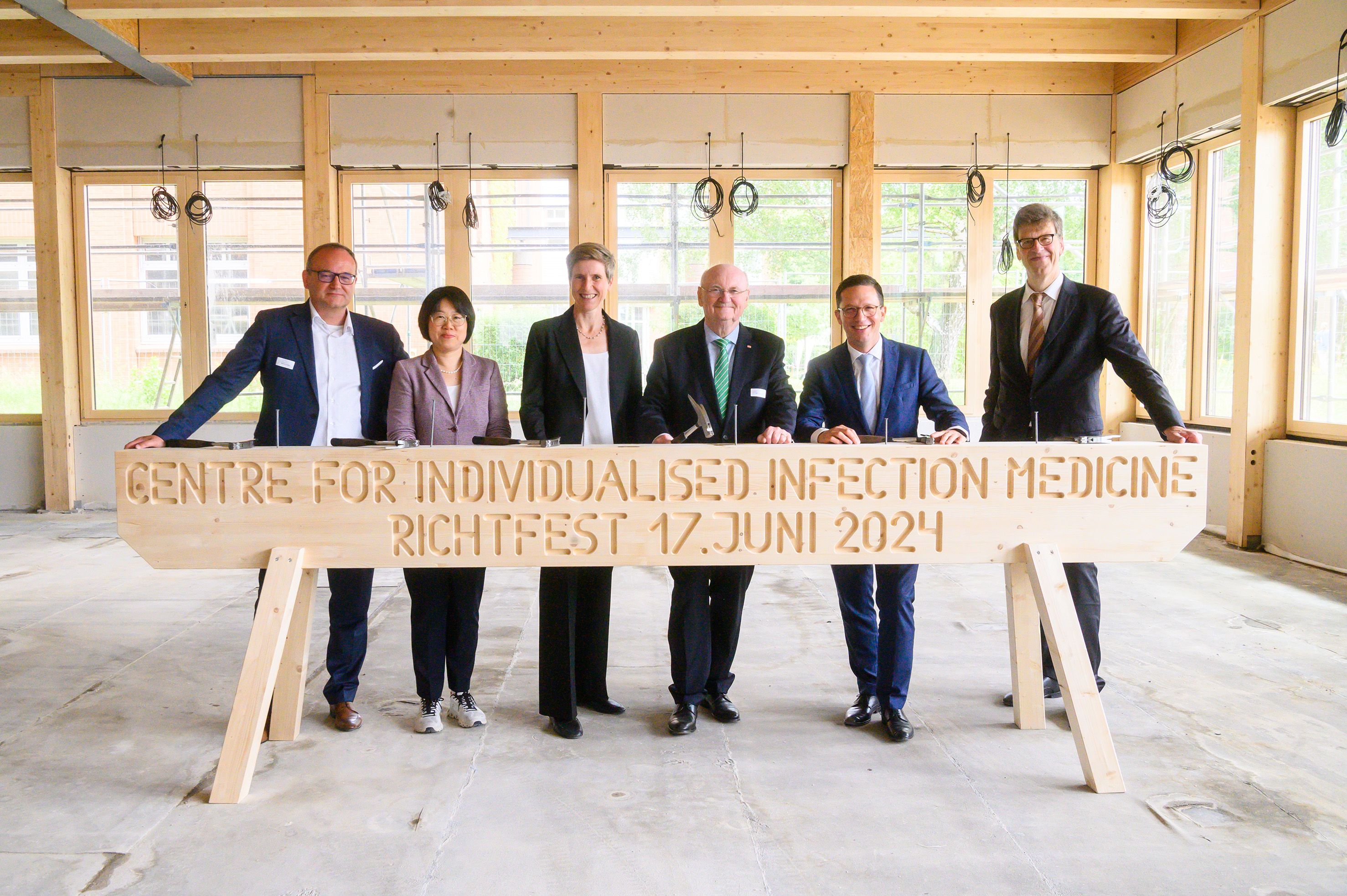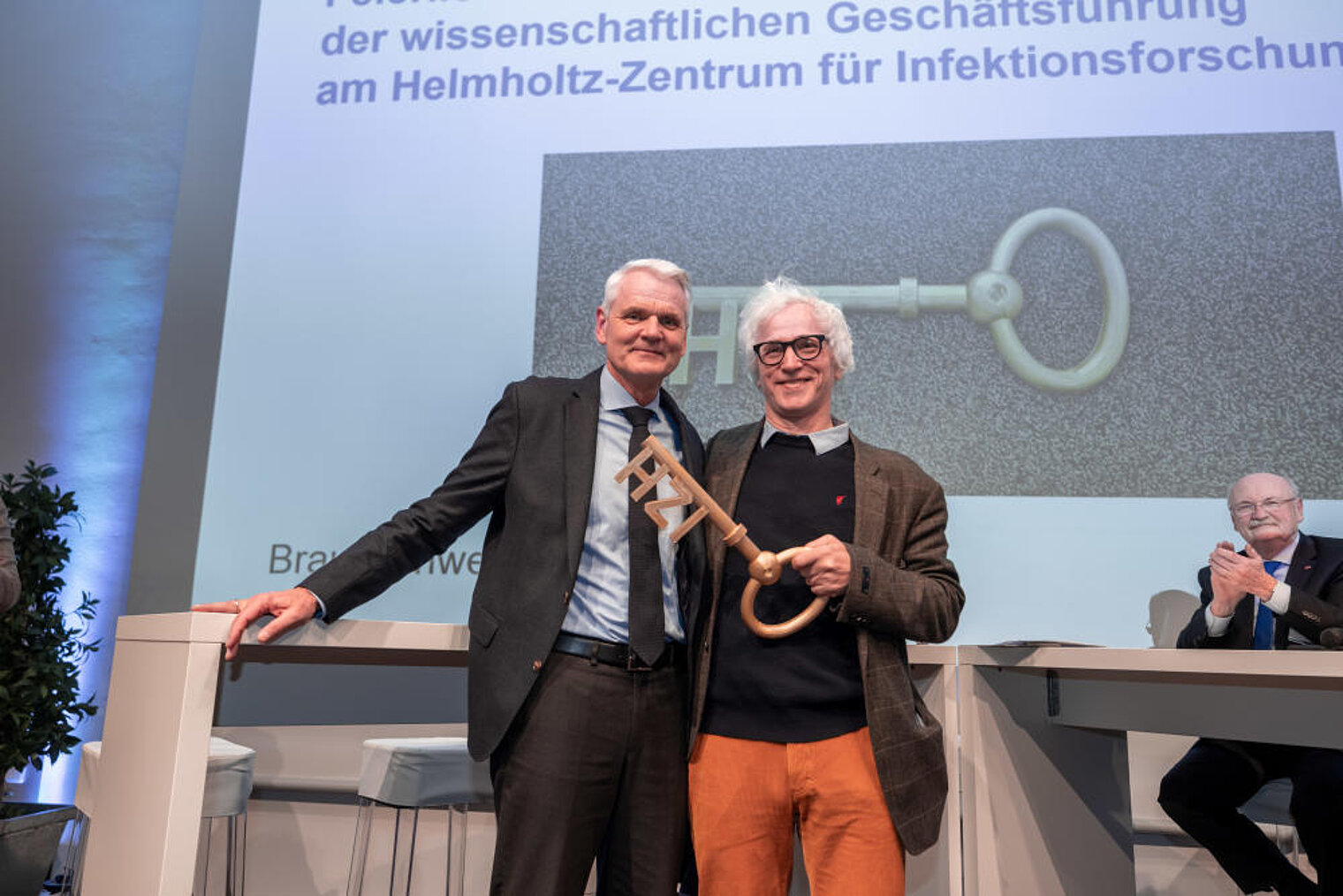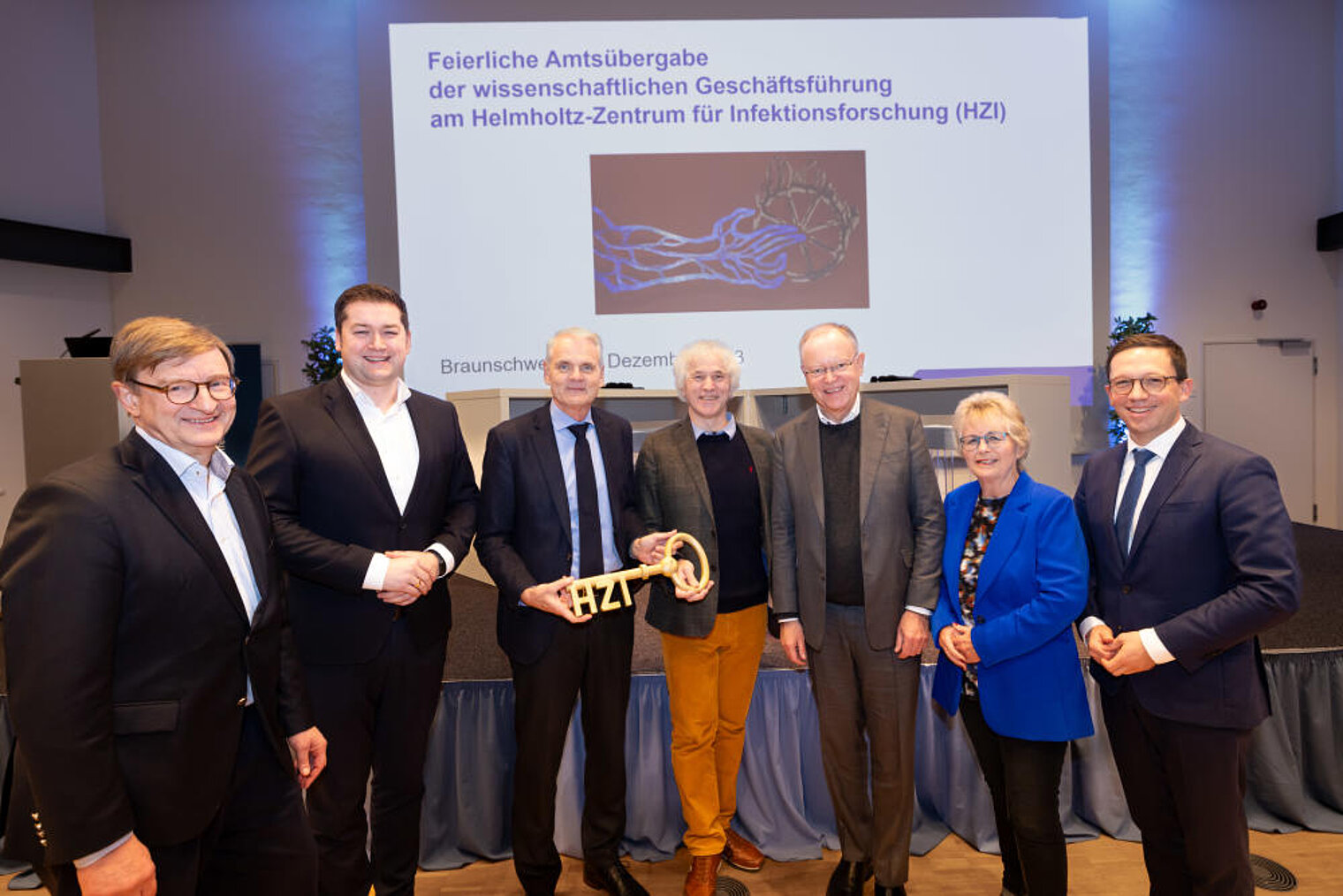History of the HZI
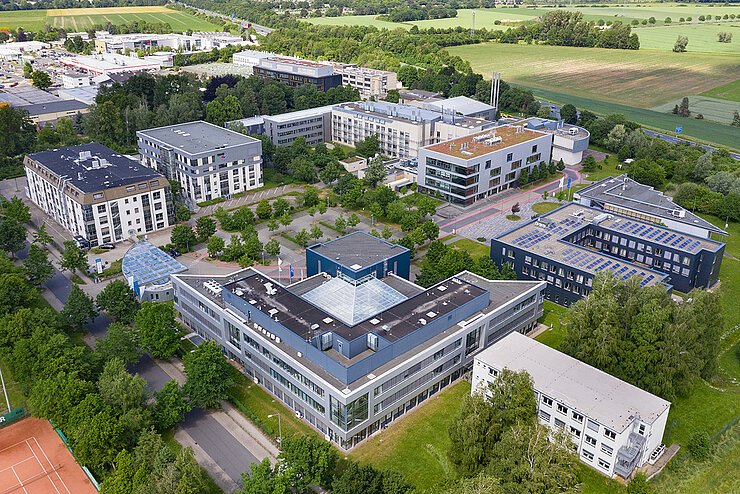
The research center in the Stöckheim district of Braunschweig, which is now known as the Helmholtz Centre for Infection Research, was founded in 1965 as the Institute of Molecular Biology, Biochemistry and Biophysics (IMB). After several name changes, it has borne its current name since 2006. The HZI now has further sites in Braunschweig, Hanover, Greifswald, Hamburg, Saarbrücken and Würzburg, where scientists research the mechanisms of infectious diseases and their defense and systematically develop their findings for medical application. On this page you can find out about important milestones and developments at the HZI.
1965 until 1997
-
1965
The Institute for Molecular Biology, Biochemistry and Biophysics (IMB), the predecessor of the Helmholtz Centre for Infection Research, is founded in Braunschweig. This takes place on the initiative of the chemist, Prof Dr Hans Herloff Inhoffen. Inhoffen's efforts are supported by other renowned scientists, in particular Nobel Prize laureate Prof Dr Manfred Eigen.
-
1968
Aided by the Volkswagen Foundation, the IMB is converted to the Gesellschaft für Molekularbiologische Forschung mbH (GMBF).
-
1975
The bio pilot plant (Biotechnikum) commences operations for the development and research of biotechnological production procedures. The focus shifts from basic research in molecular biology to application-oriented biotechnology.
-
1975/76
The Federal Republic of Germany takes over the Institute and the federal state of Lower Saxony joins as a shareholder. In 1976, this leads to the establishment of the Gesellschaft für Biotechnologische Forschung mbH (GBF). In 1976, the Gesellschaft für Biotechnologische Forschung mbH (GBF) emerges from this.
-
1997
In accordance with § 13 of the German Drug Law, the GBF is granted approval for the biotechnical production of pharmaceutical active ingredients for clinical practice. The quality assurance system of Good Manufacturing Practice (GMP) is considered for the plant.
1999 until March 2006
-
1999
Experiments on mice are indispensable for the development of vaccines and vaccination strategies. Therefore, a modern animal facility is set up in which the mice are kept.
-
2000
The modern communication centre - Forum - opens to the public. Scientific conferences, congresses and workshops can now be held on the premises.
-
2001
The GBF restructures its scientific positioning, placing the future focus on infection research.
-
2005
The GBF purchases the building of the "Gründerzentrum". The urgently needed space for several research groups is to be created in this building in the future.
-
March 2006
The capacity of the animal facility is no longer sufficient. The construction of a new building with space for more than 23,000 animals is started.
July 2006 until August 2009
-
July 2006
The GBF is renamed Helmholtz Centre for Infection Research. The new gate of the centre is completed at the same time. As a result, the premises gain a new entryway, and also a new address.
-
August 2008
The Hannover Medical School and the HZI jointly open the Centre for Experimental and Clinical Infection Research TWINCORE in close proximity to the MHH campus.
-
June 2009
The new Animal facility opens after a little more than three years of construction. More than 50 staff members take care of the approximately 30,000 mice at the animal facility of the HZI.
-
August 2009
HZI branch site founded on the campus of the University of Saarbrücken: Scientists of the Helmholtz Institute for Pharmaceutical Research Saarland (HIPS) develop new agents and therapeutic options for infectious diseases.
January 2011 until December 2012
-
January 2011
The HZI assumes the coordination of the newly founded Centre for Structural Systems Biology (CSSB) arising on the DESY campus in Hamburg.
-
April 2011
The HZI becomes the representing partner for the Hannover/Braunschweig region in the nationwide research association "German Centre for Infection Research".
-
May 2012
Grand opening of the study centre in Hannover. Future studies related to public health will be conducted at the study centre and the correlations between infections and chronic diseases will be investigated.
-
July 2012
Grand opening of the Building D2 on the HZI campus – More than 2,000 square meters of floor space for 100 scientists to work on the implementation of their visions of TRAIN (Translation Alliance in Lower Saxony).
-
December 2012
Grand opening of the German Center for Infection Research (DZIF) – The DZIF is an association of leading universities and non-academic institutions in the field of infection research in Germany. The aim is to strengthen translational research. The DZIF office is located on the HZI campus.
March 2013 until September 2015
-
March 2013
The new S3 building commences operations on the HZI campus in Braunschweig, the S3 facility in the Animal Facility 2 starts up in May 2013. In the Biosafety Level 3 laboratories, scientists can investigate pathogens that cause serious diseases. S3 laboratory facilities are closed off and isolated from the outside world.
-
September 2013
New administrative building W – The administration, executive management and public relations department are moving to the new building. The layout of the building resembles the letter W.
-
September 2014
Unique project of MHH, Fraunhofer ITEM and HZI in all of Germany – Inauguration of the Clinical Research Center Hannover (CRC Hannover) – The CRC is an important interface between basic research and marketing authorisation for new medications and medical devices. The focus is on concepts for early clinical studies.
-
September 2015
Inauguration ceremony of the new building of the HIPS – After two years of construction, the new building of the Helmholtz Institute for Pharmaceutical Research in Saarland (HIPS) is completed. A branch location of the HZI, the HIPS is the first non-academic research institution for pharmaceutical research in Germany that is financed by public funds.
September 2015 until October 2015
-
September 2015
The interdisciplinary Centre for Structural Systems Biology (CSSB) celebrates the roofing ceremony of its new research building – From 2017, the CSSB will research bacterial and viral infections in a unique interdisciplinary approach on over 10,000 square meters. The CSSB is a joint initiative of nine research institutions from northern Germany, in which the Helmholtz Center for Infection Research is also involved.
-
October 2015
50 years of top research in Braunschweig-Stöckheim – Founded 1965 in Braunschweig, the predecessor institution of today's HZI has undergone several phases of content restructuring in the past half century. Since the beginning of the 2000's, the focus of the centre has been on "Infections". With a panel discussion, film clips and many eyewitness accounts from the past 50 years we look back at our history and dare to take a look forward at the challenges ahead (Ceremony).
-
October 2025
For the first time, the HZI is defining a long-term overall vision for its research in a publicly accessible, structured strategy document. The “Roadmap HZI 2025” sets out goals for the next ten years based on the conditions prevailing in 2015 and specifies planned measures on the way there. The guidelines set out will have a decisive influence on the center's directional decisions in the years to come.
November 2015 until October 2016
-
November 2015
Groundbreaking ceremony for new Drug Research and Functional Genomics Centre DRFG – The new Drug Research and Functional Genomics Centre (DRFG) is developed on the HZI campus in Braunschweig. Novel agents against pathogens as well as bacterial genes and their function will be researched at this location.
-
December 2015
HZI and the Hannover Medical School (MHH) jointly found the Centre for Individualised Infection Medicine (CiiM). The new institute aims to investigate and develop new, custom-made therapies for each infection patient.
-
August 2016
Inauguration of the research centre for systems biology BRICS – The joint research centre of the Technische Universität Braunschweig and the HZI commences its research operations. Some 170 researchers from institutes of both facilities mainly address models for the life sciences in this setting. The aim is to use these models for a better understanding of the foundations of life to make new applications for health and environment possible.
-
October 2016
Start-up of the HIRI in Würzburg – The HZI and the University of Würzburg launch a new institute for infection research: The Helmholtz Institute for RNA-based Infection Research (HIRI) addresses a new research field and aims for novel therapeutic approaches.
June 2017 until March 2018
-
June 2017
The Centre for Structural Systems Biology (CSSB) celebrates its opening on the DESY Campus in Hamburg. In this new interdisciplinary research centre, scientists from ten different research institutions work together on the elucidation of structures, dynamics and mechanisms of infection processes. HZI has been one of the founding institutions of the CSSB and is represented there by its department “Structural Infection Biology”.
-
October 2017
HZI and its campus partners DSMZ, Fraunhofer ITEM, Technische Universität Braunschweig and DZIF establish a new joint umbrella brand titled "Science Campus Braunschweig-Süd". Together, they aim to expand the regional and nationwide visibility of this modern Life Science campus, promote networking of the partnering institutions and attract new cooperation partners and young talent.
-
March 2018
As part of the Helmholtz Association’s programme-oriented funding initaitive, panels of internationally renowned experts evaluate the research programmes of all Helmholtz Centres. As a result, the achievements of HZI’s programme “Infection Research” receive the highest possible rating, “outstanding”.
June 2018 until November 2019
-
June 2018
Together with the Volkswagen Foundation, HZI and MHH host the “Herrenhausen Symposium on Individualised Infection Medicine – The Future is now” in Hannover. The first International expert conference dealing exclusively with this subject highlights the current state of research and the perspectives of individualised infection medicine. The meeting organized by CiiM attracts 200 participants.
-
February 2019
HZI and the drug discovery company Evotec SE join forces and sign a cooperation agreement with the goal to develop novel antibiotics to overcome drug-resistant bacterial pathogens. The first common project of this public-private partnership is the optimisation of cystobactamids, a family of natural antibacterial products that are active against the most dangerous Gram-negative pathogens on the WHO priority list.
-
November 2019
The HZI site HIPS in Saarbrücken agrees with the University of Saarland (UdS) and the Leibniz Institute for New Materials (INM) on an interdisciplinary cooperation in biomedical-pharmaceutical drug discovery. The aim of the "Saarland Research Alliance" is to bundle the activities of the partner institutions in research, teaching and the promotion of young scientists and to use synergies.
February 2020 until April 2022
-
February/March 2020
The outbreak of the Covid-19 pandemic at the beginning of 2020 leads to a reorientation of numerous projects at HZI. The flexible programme structure enables HZI to react very quickly and, despite the restrictions imposed by the lockdown, to focus on the immediate fight against the pandemic. Covid-19 research becomes a new focus of HZI. The centre develops concepts for mathematical modelling, recording and monitoring of disease outbreaks, serological analysis, vaccine and drug research. Together with national and international partners, scientists at HZI have already started working on more than 50 corona-related projects.
-
April 2022
Founding ceremony of the HZI site Helmholtz Institute for One Health (HIOH) in Greifswald. The local founding partners of the institute, which conducts research at the interface of human health, animal health and the environment, are the University of Greifswald, Greifswald University Medicine and the Friedrich Loeffler Institute, Federal Research Institute for Animal Health (FLI).
June 2022 until today
-
Juni 2022
With a total budget of 25 million euros for five years (2023-2028), the Institute for Biomedical Translation (IBT) Lower Saxony, founded in June 2022, promotes the transfer of cutting-edge research in the life sciences in Lower Saxony. The aim is to translate scientific innovations into start-ups and entrepreneurial ideas. The founding institutions are Hannover Medical School (MHH), the University Medical Center Göttingen (UMG) and the Helmholtz Centre for Infection Research (HZI).
In June 2023, a UMG project to combat chronic kidney disease was funded with 1.5 million euros as a pilot project. At the second portfolio conference, the HZI project PROTON, led by Prof. Mark Brönstrup, was the winner and received funding of almost 900,000 euros. -
November 2023 - June 2024
A research building for the CiiM, an initiative of the HZI and MHH, is being built in Hanover. After the foundation stone was laid in November 2023, the topping-out ceremony was celebrated in June 2024. The CiiM develops individualized prognoses, diagnoses and therapies for infectious diseases. The new 2100 square meter building is funded by the federal government, Lower Saxony, the Helmholtz Association and the HZI. Until completion, the first research groups will work in the neighboring TWINCORE.
-
December 2023
In December 2023, the handover of office from Prof. Dirk Heinz to Prof. Josef Penninger was celebrated with guests from science and politics. After 13 years, Penninger took over the scientific management from Heinz in July 2023. Penninger's first milestone was the launch of the project “Microbial Stargazing - Research into Resilience Mechanisms of Microbes and Humans” (MICROSTAR) with a total budget of around 30 million euros.


